 By Tom Muir By Tom Muir
May 1st, 2017
BURLINGTON, ON
Tom Muir, an Aldershot resident who does not have children in any schools, wanted to know why parents in the city of Burlington were being told that two of the city’s seven high schools should be closed. His attempt to get at the real reason behind this decision boggles the mind. Red tape galore – a long but not very pretty story.
Part 4 of a four part series: Another Chapter in This Saga
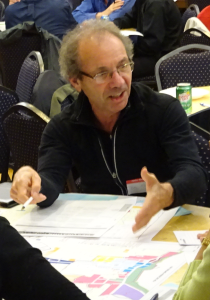 Because the response to my Freedom of Inforamtion (FOI) request to the Halton District School Board got tied up in the mail, my failure to receive a response to an identically worded FOI request to the Ministry of Education prompted me to contact them. I found the same problem that a Ministry response was in the mail to my home. Because the response to my Freedom of Inforamtion (FOI) request to the Halton District School Board got tied up in the mail, my failure to receive a response to an identically worded FOI request to the Ministry of Education prompted me to contact them. I found the same problem that a Ministry response was in the mail to my home.
I then asked for and received a response by email, and got it April 11.
The Ministry replied that;
“upon review of the records, it has been noted that your request may affect the interests of a third party”
“The third party has been notified that a request has been made for the records, and has been given the opportunity to make representation concerning the disclosure of the records.”
“A decision on whether the records will be disclosed will be made by April 30, 2017 in accordance with subsection 28(4) of the Act.”
At this message, the identity of the third party remained anonymous.
It was obviously concerning because this long delay, with the opportunity for the third party to appeal a decision to release at the April 30 date, meant that the FOI documents from the Ministry might not be released until after the PARC process was essentially over and would be of no use.
This statement and finding begged me to ask numerous questions. For example,
– I don’t know how such an FOI request as mine, involving entirely public business, by public institutions, could involve the interests of a third party other that the HDSB and the Ministry of Education, and employees of said institutions.
– Please tell me how this could be, and what evidence is there that my request may affect the interests of a third party?
– And why are you withholding all of the record?
– I know of some particular parts of the record that have been disclosed by the HDSB, so tell me how this works?
– How could anyone have personal interest in a public process involving only public institutions and public records, have personal interests and information the disclosure of which might constitute an unjustified invasion of personal privacy?
– It’s all public business, conducted in the public domain, so there is no personal privacy to be invaded, unjustified or not.
Subsequent correspondence with the Ministry included;
– On second thought to my message below, it occurred to me – is the third party considered by you to be the Halton District School Board?
– There are only 3 parties to this FOI request – I (1),sent the FOI to the Ministry (2), and ask about their interaction with HDSB (3), without which the basis for the FOI request has no object to search.
– If it is, then this is a most ridiculous idea, and it fits with my suggestion that the end result of this failure to disclose any of the record is to delay beyond the timeline of the public process for which the FOI is meant to inform about.
– The record involves HDSB in some way so this fits with all the record being withheld.
– It is also ridiculous to think that disclosure would constitute an invasion of privacy for HDSB, which is not a person, and staff who are not private persons in their responsible employment with HDSB.
In response to this, the Ministry stated on April 12;
– The information responsive to your request originated from, and was created by, the Halton District School Board.
– In cases like this one, section 28 of the Freedom of Information and Protection of Privacy Act (the Act) makes clear that if there is reason to believe the responsive record may contain information referred to in section 17 [Third Party Information] of the Act, we are to give written notice to the entity or person to whom the information relates.
– As you will see in the portion of legislation below, section 17 lists harms that an affected party would need to prove relevant to prevent the release of specified information. Third party notice is important, especially when we require clarity as to whether the information shared by another institution, business or person was supplied in confidence to the Ministry.
Here is our update –
– Following our third party notice to the board (affected party) and our advisory letter to you (the requester), the board confirmed that they have no concerns with the release of the records.
– My staff are attempting to reach the board contact and advise them that we will release the records prior to the end of the third party period. This is not a usual occurrence, but given their green light, we will proceed. I understand you are under a time constraint of your own so, with your permission, we can send you the records via e-mail when they are ready for a mail-out.
Since all this Ministry revelation was going on at the same time as my interactions with HDSB it is easily imagined that the upset was doubly disturbing and running on.
My reading of this is that all the information in the FOI response came from the HDSB. This was disturbing as it sounds like the Ministry didn’t provide any of its own records, despite my knowing of several documents in the HDSB response to their FOI that are Ministry documents.
This makes it appear that HDSB did basically all of the Ministry response to the FOI. And since the scoping of the FOI request was identical for both HDSB and Ministry FOI requests, it would be obvious to the HDSB that they are coming from the same person.
Further, according to the Ministry, despite the HDSB indicating they had no concerns, the groundless and purposeless delay till April 30 was kept in place, and the HDSB would have known about this, and knowing the identical text of the FOI request, would have a highly likely knowledge of who it was that the FOI response pertained to. And yet, the Board said nothing and let the time delay stay in place.
Add all this together – Board and Ministry issues and delays – and let me tell you, that your so called “unnecessarily abrupt” email from me becomes both necessary and appropriate.
So, on the same date, April 13, the Ministry got a equally “abrupt” email challenging what had been done and essentially “demanding” their FOI response that very same day as I asked the Board to provide theirs.
Although I did not get my demand, in contrast with the Board’s stone-wall and continued power driven evasive response, this is what I received;
Good morning Tom,
My office’s decision to issue a third party notice, which is a time extension, is permitted under the Act.
My office is preparing a response that is the totality of the records responsive to your request. We cannot create records for an access request; only provide records that exist in our custody and control. The records existed in our Ministry at the time we received your request.
Despite the April 30th deadline, we intend to get the records to you next week.
Conclusion
So there you have it, my promised story about how this email you find so “unnecessarily abrupt”, as to be so offensive to you, that you continue to play the Board’s power trump card to dictate conditions, a bully tactic that I have no countervailing means to respond with.
So you got something like what you give.
In conclusion, I will say that I did not opt out of conversation with your Superintendent of Business, rather she opted out of a conversation with me about what the conversation needed to consist of in order to meet the standards of public institutional transparency and accountability, which are of course, the basis of trust.
I never said I didn’t want to consider a conversation. I still want the information and clarifications I asked for.
Now – what was in the documents Muir worked so hard at getting? That comes next.
Part 1 of a 4 part series.
Part 2 of a 4 part series
Part 3 of a 4 part series

 By Pepper Parr By Pepper Parr
May 1st, 2017
BURLINGTON, ON
It is amazing what comes to the surface when a problem is set out before the people it is going to impact.
Rory Nisan is a Lester B. Pearson alumni. He doesn’t want to see the high school that prepared him for university and the career he has today closed.
However Nisan isn’t moaning about the community losing a school that everyone loves; he has set out a number of options that appear to be sound.
Here is what Nisan proposes: He deserves a hearing;.
(1) Send Kilbride PS students back to Pearson.
Result: 116 students sent back to Pearson, where their older siblings attended. Hayden gets relief; Pearson gets students.
Note: The Director claimed at the Committee of the Whole meeting that Hayden HS was closer to Kilbride than Pearson. In fact, there is a 200 metre difference (14.6 km to Hayden, 14.8 km to Pearson).
(2) Maintain decision to send Alton West students to MM Robinson
Result: MM gets 40 (or more) students.
(3) Make all of CH Norton a feeder school to Pearson. This unites the public school to a single, nearby high school, and rectifies the unfair catchment boundaries, which currently do not allow Pearson a fair number of feeder schools.
Result: Pearson gets 59 students, CH Norton students get to stay together.
(4) Send any students from the new prospective development at Havendale Lands (West of Brant, South of Upper Middle) to MM Robinson (units TBC)
Result: MM gets students.
(5) Send all Florence Meares students from Hayden to Pearson
Result: Pearson gets 237 students; Hayden gets relief. Meares graduates no longer have to cross Dundas street to reach Hayden.
(6) Send late French Immersion students to MM Robinson from Macmillan
Result: MM gets 156 students
(7) If Bateman closes: MM Robinson receives ESS, Gifted, CPP and Leap programme from Bateman where student is north of the HWY (~110 students). We do not advocate closing Bateman, and we don’t need these students. But if Bateman must be closed to deal with utilization in the South, MM Robinson should receive these students so they do not have to travel too far (as outlined in the Director’s Final Report).
Result: less distance for these students to travel
(8) At a future date, commit to sending an appropriate distribution of students from new developments to the three schools based on updated estimates and location of developments (Adi development: 602 units; Valera road: 400 units; Evergreen Community: 907 units).
Result: Flexibility to re-balance utilization numbers based on changes 1-7 above.
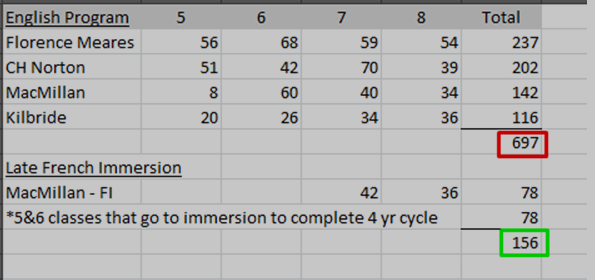 This graphic demonstrates the total number of students at Pearson if Pearson were to have the four listed schools as it catchment, and if late French Immersion were sent to MM, based on elementary school data today (697 estimated). It also indicates how many students MM would add if it were to receive Late French Immersion students (156 estimated).  New catchment boundary for Pearson based on changes (Kilbride not shown). Red = Hayden; beige = M.M. Robinson; blue = Pearson If Bateman doesn’t close, MM Robinson adds 137 students, plus Havendale Lands Development, plus possible future distribution of other new developments.
If Bateman closes, MM Robinson add 247 students, plus Havendale Lands Development, plus possible future distribution of other new developments.
Pearson adds 266 students, plus possible future distribution of other new developments.
Hayden subtracts 353 students, and then will add possible future distribution of other new developments.
This straight-forward proposal puts all three school in the North at sustainable utilization levels.
What’s killing Pearson is choking the school of its elementary feeder schools. The Board has never explained any rationale for this decision and the trustee has never asked why it was done.
Will Nisan get a hearing; does he have the support of his school trustee?
Nisan isn’t the only Pearson alumni who has concerns over what has been done to the school. George Ward attended the meeting at which Director of Education Stuart Miller explained what he had set out to do in his recommendation after which he answered questions.
Ward had some questions of his own but learned hat he wasn’t allowed to ask questions. That didn’t seem to bother him – he bellowed out a question which led to the Chair of the meeting insructing the trustees to stand and leave the room – the meeting was over.
Ward wanted to know if the HDSB forecasts are for 10 years and updated yearly then why is the Director of Education recommending the closure of two high schools three years and a few months after the new school was opened?
Ward thinks the Director based his recommendation on a chart showing projected enrollments.
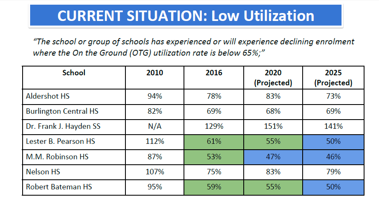 George Ward has a problem with this chart – he thinks the data behind it are flawed. Ward thinks the process of forecasting projected enrollment must be called into question – he is not alone in that point of view. Has the Director of Education made a recommendation based upon defective forecasting?
Ward maintains “The process of closing Burlington High Schools is flawed and should be immediately halted and to pursue the action to “Save All Burlington High Schools”.
That decision was never the Director’s to make – it is in the hands of the trustees now. They will get to hear delegations from the public on May 8th and 11th – 25 delegations each evening – five minutes each.
The Program Accommodation Review was flawed from the day it started; to a considerable degree because the way the province set out the regulations that had to be followed. This was compounded by the problems the Board staff had with publishing data the public was prepared to believe because it kept changing.
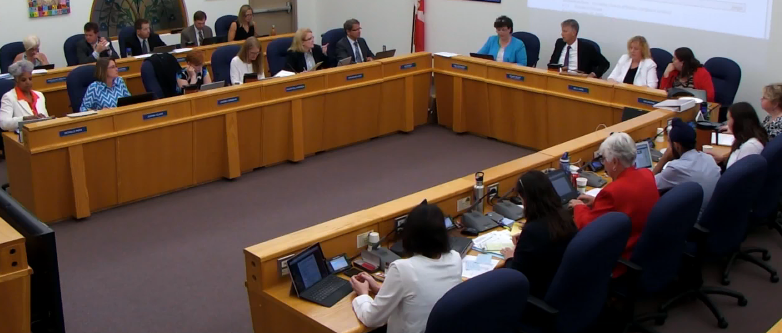 There is a crisis of confidence in the Board of Education trustees. There was and still is a crisis of confidence. Will the trustees sand up for the public that elected them – or will they role over and do what the Director of Education has recommendation.
The trustees are there to lead – when the Chair Kelly Amos chooses to not actually attend the meeting but take part by telephone conference call – one wonders where the leadership is coming from.
If the Chair was ill and not able to actually attend – a simple brief media release could have informed the public.
Of the 11 trustees just the one distinguished herself; Amy Collard had tough questions and when she didn’t get answers that satisfied her – she made sure the Director of education know she was not pleased.
The public now has time to delegate and make a case for a specific decision. This isn’t the time to complain about one group of parents throwing a school under the bus; this is the time for the leaders of the different schools to meet and come up with a strategy and take it to the trustees.
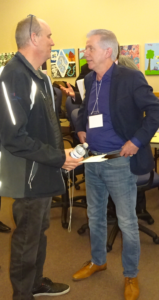 Ian Farewll could be talked into another meeting and Steve Cusson would still be at PARC meetings if they had let him. There were some very talented people involved in the PARC process. Lisa Bull from Bateman, Steve Cussons from Aldershot, Steve Armstrong from Pearson and Kate Nazar from Nelson to name just a few – need to make phone calls to each other. Ian Farewell can be convinced to attend one more meeting.
Bull brought small bottles of wine to the closing PARC meeting to hand out. Buy a case of the stuff and get the parent leaders in the same room and work it out.
What city Councillor Meed Ward is going to do at this point is anybody’s guess. She is know to enjoy a glass of wine, perhaps that will stir the leadership gifts she does have.
The current crew of trustees do not appear to be able to do the job – the parents that elected them are going to have to step in and give them some guidance.
There isn’t a lot of time left.

 By Dianne Miller By Dianne Miller
APRIL 28th, 2017
BURLINGTON, ON
The reaction begins: parent Dianne Miller write about her experience at the meeting where Director of Education Stuart Miller reports to the trustees.
After attending a rally for two schools (I have a teenager at each of the proposed school closure sites) prior to the meeting last night I went from a feeling of wow – so many care – to wondering if it is remembered that two schools are up for closure.
I apologize for the length of this letter, I hope you will take the time to read it.
For three hours, a group of parents, students, and community members, sat and listened both to Stuart Miller trying to defend the most expensive option that he is recommending and to the school trustees who had a chance to ask many, many questions. Kudos to some of the trustees. It was obvious some had read the proposal; reflected; made notes; had very pointed questions; were there to challenge the proposal; hear rational arguments; present alternatives; defend the school they were representing (if up for closure). The difference in those fighting for their school and those who were not was striking.
I have to respond to some things that I heard last night that were in obvious conflict or were not addressed for myself.
1) A gentleman sitting beside Mr. Miller (to his left for those sitting in the community section) (Dom Renzalla) responded to why Kilbride students had been removed from LBP and redirected to Frank J. Hayden High School.
The rationale…it didn’t make sense for them to pass by two schools. Really? Then what justification was reached to have Orchard students “pass by” LBP to head to Nelson and/or Bateman? What justification was utilized to take two new northern community developments (one already decided in a boundary review (prior to the PARC process completion) and another slated to MMR in the Director’s proposal) to pass by LBP (the closer school) to head to MM Robinson?
2) The focus in response to the only question Trustee Papin seemed to ask related to defending LBP related to the decreasing numbers. The response – Kilbride students were only about 80 students (it was closer to 120) and wouldn’t stop the declining numbers. No but ignoring the fact that Hayden was originally meant to have 4 feeder schools but now has 7 feeder school while Pearson has 1.5 feeder schools definitely is relevant. So too is the decision to have the two new developments go to MMR (passing by LBP). A further 2 other proposed developments north of the highway has also been ignored.
No matter what facts/logic that has been put forth – i.e. 1284 of the 1800 empty spaces are south of the highway; 3 years of overcrowding at Frank J. Hayden (that’s okay, we will monitor); and the fact that both MMR and LBP can be the solution to that overcrowding, have all been roundly ignored.
3) Splitting cohorts – this seems to change depending on the situation and which school is being discussed. So the ideal is no splitting of cohorts? Well, C.H. Norton is split to 1/2 to MMR and 1/2 to LBP. No problem. Gifted program – oh well, no problem, in the proposal, with splitting even though already low numbers in this stream that needs to be back-filled. The new development – nope – it cannot go to LBP because then you might have to split the English and French cohort – no can do. Not sure how that decision why reached? Why did they have to be split – given “LBP’s declining numbers” both English and French were able to be accommodated at LBP. Frank J. Hayden – French Immersion – sure no problem – let’s move them from the student body at Hayden and re-route to MMR. Robert Bateman – no problem in tearing apart the different cohorts and splitting between multiple schools. Central, once under consideration for closure, presented the argument that the cohorts would be split (i.e. to Aldershot and to Nelson and suddenly that wasn’t okay. It is convenient how there is an issue with cohorts until it doesn’t suit the narrative being spun.
4) Late French Immersion (LBP) and French Immersion. I haven’t heard the difference addressed once. So, LBP’s Late French Immersion program is going to move to MMR? How is that stream going to work with the FI group that has worked in that stream from Grade 1? Normally one needs to get permission to switch over or needs to be at a level to integrate with the FI stream from Late French immersion. So how is this going to be dealt with? Doesn’t this then exacerbate conflicts?
5) Nursery Co-op at LBP. This item/group has been given little to no thought. LBP was adapted to include accommodation for the Nursery Co-op. A third gym was added with city and community donations. This program has been here for 40 years. Zero mention/zero consideration. Apparently though, per the report, no adaptation is needed with the LBP move. See you later Nursery Co-op program. The “we will have to consider” etc. what to do with this group is not reassuring. Given that you will throw all schools into over capacity, what responsibility will you possibly feel to accommodate this amazing co-op win/win program that has flourished at LBP?
6) The most expensive option. MMR and Bateman from what I understand, have both undergone some adaptations for special needs programming. This costs money. Now we will wipe out one school and all of the money put into those adaptations (including the industrialized kitchen, which is no where else) and replicate them at Nelson. How in any way, shape or form is this showing fiscal responsibility? As a taxpayer I was appalled to hear Mr. Miller state, “12 million dollars may seem like a lot but”. No, stop after the but. It is a lot of money. It is duplicate money when Bateman already has those features. It is sheer irresponsibility on behalf of this board to even consider an addition to Nelson while closing Bateman which already has those features. The justification of having one fully adapted location in the South and North does not warrant this expenditure. You see, it is already in the south. Spend the funds if you want it at MMR only to upgrade.
7) We heard a lot about we cannot remain at status quo. Boundary change will not fix the problem. Let’s address the status quo. So, Aldershot gets to remain at status quo in the Director’s current proposal. Hayden remains at status quo (minus the FI students). The red herring for Aldershot is that it might become a theme school (which the Director mentioned in his report and at the start of the meeting). This plan was then diminished by Stuart Miller himself as probably not workable (as it hasn’t worked in other areas) half way through the night. So why the game? Why the red herring that one is even going to look at this if you are already determining it is going to fail?
Status quo – you have left LBP at status quo (under-utilization) and Hayden at status quo (over-utilization) for 3 years while robbing students in both of a rich, full educational experience.
Re the boundary change – yes, indeed it will address some of the problems. LBP can absolutely be a solution to Hayden’s overcrowding as can MMR. All three schools can become more equitable with boundary change. Add into that the 4 potential new developments and you can definitely have a 3-way win.
Question – if the 90% capacity goal for each school isn’t working – perhaps the 90% goal is in error to begin with. Has anyone ever checked this underlying assumption/premise? Why not 85 or 80%?
8) Closing schools is very short term thinking. Looking at your past projections/reports you were off in those numbers. What is to say you are not going to be off in these projections? Once the land is gone, it is gone. I heard a trustee ask last night about other options. Why have they not been pursued 100%? When I spoke with Eleanor McMahon’s office, they too brought up other options prior to closure. Why is the Director determined to close not one but two schools prior to full exploration of all of these other options and funding available (again as mentioned to me by Eleanor McMahon’s office)?
9) As a community member with a student at LBP, I was disheartened to say the least that no one seemed to care about this school’s potential closure or the impact on the students/community. It was like one school’s closure only was being debated. Does no one care? Why is it so easy or accepted that LBP should close? The perception by the community is this has been planned. That has never been denied. Why will no one stand up, at the board level or trustee level for this group of students? They deserve every bit as much consideration as those at Bateman or elsewhere. By standing up for them I do not mean gutting their school and moving them elsewhere (if that is your response).
10) Questions were not answered last night. The “we’ll wait and see”; “we’ll monitor”; “that is a possibility”; “we will see how this plays out or levels out” inspired zero confidence. Why would anyone put their faith in a report that gave these responses as their answers when challenged?
11) I would love to see the minutes of the meetings leading up to the decision to build Frank J. Hayden High school. I am sure one point included that the community was “growing” and that a “community school” was needed. But you see each community believes the same. While this point keeps being dismissed as this is in the past and we are here now, who gets to be held accountable for spending $32 million for a build that caused the current problem? That decision is going to result in two other schools being axed. This is acceptable how? It also brings into question why the public or even the Minister of Education should trust the current recommendations.
12) A question was asked (and not answered) as to what is an acceptable level of over-capacity. The current reality at Frank J. Hayden (with the we will monitor attitude) is:
Students have classes in the hallway, in the cafeteria and in the community library next door
There are 12 portables currently on site – potentially 18 in the future
A lie was told last night about how students are maybe in the portable for one class then in the school. That is not true. Some students want to leave Hayden as their whole school career has been spent in portables only.
If Hayden is at over-capacity why is it still accepting new students; why is it actively recruiting students for sports teams from other schools?
Surely this is a fire hazard.
The solution to the over capacity – rezoning of the parking bylaws. Really? So the community (for the parks, library, school) are going to fight it out for parking spaces to accommodate potentially 18 portables? More fire hydrants? Yet you have a school (LBP) which has room for expansion without these issues. Yet, zero consideration is given to this obvious solution.
13) In perhaps the height of insensitivity, given the divisive and emotional nature of this process, I cannot believe that the issue of potentially building yet another shiny new school in the south (meaning even more schools south of the hwy would close) came up last night. Seriously, someone really needs to rethink why they are in the position they are in and who votes them in. This is in the student’s best interests how? What happened to, “we are not here to close schools, no one wants to do this.”?
14) Even given all of the proposals some of the streams still may not be where they need to be. Wasn’t that was this process was supposed to be partly about (as well as under-utilization)? May I submit that just looking at programming in and of itself without giving weighting to:
a) ability to participate in sports teams b) clubs c) single lunches (preferred by school admin) d) graduating with those you began Gr 9 with e) being known by your teachers and fellow students f) safety/bullying issues g) social issues – i.e. anxiety, integration, etc. for some all need to be considered.
Take off the narrow focused blinders. Saying that those other issues, or even special needs considerations violates the spirit of the a) under-utilization and b) programming which triggered the PAR is operating in a vacuum. You cannot just look at two facets. Again, to do so, does not take into account a 360 perspective and full interests of the student. It checks a box. It meets a rigid criteria. It is a self imposed rule that is very narrow in its’ thinking.
15) No one has ever answered this question for me. Is the board for or against online courses and other means of learning (i.e. virtual learning)? Throughout this process and in the surveys it was used as a negative and to justify conflicts, lack of options for programs etc. Yet, a gentleman, from the board, spoke last night about how it is increasing, how some prefer it, how they have increased it in younger grades – this made it sound like a positive. Which is it? Are we to presume it will be done away with once we have reach maximum capacity of streams since it is being utilized to point to course conflicts and a justification for moving pupils around?
16) Busing. Never addressed satisfactorily in this process. We already have a problem. The assumption is that the students from LBP all live 1.9 km from MMR. Not true. So what happens then? More busing? Gifted students split -north/south – busing for them? The Director hedged re northern busing for the gifted students. Not okay. This is an on-going cost. Makes no sense.
17) One consideration that was totally brushed off was parents indicating (or students) that to stay at their school, with their friends, they would drop out of French Immersion (Hayden). The Director didn’t give much weight to this. Parents I know, who’s children would go to MMR should LBP close as recommended, already have their paperwork and decision made to move to the Catholic school board system. Those in the gifted program, who have been together since Gr 1-8 (and who are slated to be split) – well, the attraction per the Director is that they would prefer to be closer to their home/community and save 10-20 minutes. Sir, with all due respect you do not know the students. Their friends, not the 10-20 minutes, are their priority. To the parents – the Fraser Report data, the reputation of their current school (over another), their need to keep their child from another at MMR (which is why they are at LBP due to past bullying issues) is what is of importance. I say this not to disrespect the staff and students at another school but to show how it is of concern. The loyalty of the FI students isn’t to FI – it is to their peers at Hayden and to their school. You are under-estimating this sir. If you are wrong, especially with the FI at Hayden you still have an overcrowding issue and then a stream issue.
18) This was supposed to be about the students. It is not. Those at Hayden have been left in overcrowding for three years. Current solution – move FI -maybe 50% (if others choose mainstream) or 100% and monitor the rest (re overcrowding). Utilize portables. Bateman – it is okay to impact the most vulnerable in our school population with yet another move. You claim to understand how hard this is for them – if you did and really took to heart reports of what change vs. consistency does mean to them – you would not be making this decision. For those at LBP who answered the report that they appreciated and loved the close relationship with the teachers; that being known means a lot to them (vs. a number in a larger school); to having that opportunity to really fit in by participating in a sports program; then you would do everything you could to revamp those numbers to bring them up to about a 600 range of student population. You wouldn’t be separating cohorts at the elementary level and streaming them to two different schools. You would actually listen to them; see their faces; hear their words; read their signs; feel their pain. My daughter feels crushed and invisible in this process. My son feels resigned that this has been the plan all along. I cannot in good conscience tell them otherwise.
19) Has anyone, and I mean anyone, given the rhetoric I keep hearing about optimum programming being at 1200 students per school or even consolidating schools, read the reports/studies (too numerous to mention by professionals in their field) that say that 600-800 is the best number for high schools? If we want to look at the experts and their opinions – why is all of that data, information, input, years of experience, routinely ignored? Or, in fact is this information not even being considered?
20) I felt it was very misleading when a question was asked about new growth in Burlington (in fact we are already at the proposed growth now that the City of Burlington had expected in future years), to hear only about development south of the highway (and mainly condos so it doesn’t really count). The north will have, per Jack Dennison, the final single dwelling units, multiple townhouses, etc. The south will have condos or high density on existing properties that will be rezoned. The city and the board appear to use different metrics. The city has adjusted and realizes, due to financial considerations and cultural differences, that more than one family may occupy a dwelling. This actually caused the explosion at Hayden partially (i.e. incorrect forecast/numbers were projected by the board). What adjustments are you talking about to reflect this reality?
21) What were the results of the survey where the community was asked to input on their choice of options. For many that I spoke with, the 7B option of “no school closures – but boundary reviews” seemed to be the prime choice. Yet, even before your final report, that was being discounted as one that would not work. What then is the purpose of all these surveys – student, parent, community, first meeting (where no questions were answered), if input is ignored?
I have said it before and I will say it again, if you didn’t go into these jobs with the intention of closing schools, then that should be your starting and ending point. You are in the education field – be creative. All of the individuals that are working so hard to save their schools have put hours into coming up with creative ideas, ways to save their schools. Don’t ignore them. Stop seeing the children as a group – as an entity. They are individuals. Work with them, work with the community, to save all of our Burlington schools.
I write this letter for our community schools not just for my daughter and son, but for all the children and future high school students. They are worth it.

 By Ray Rivers By Ray Rivers
April 28th, 2017
BURLINGTON, ON
Like a growing number of people these days, I almost never read a newspaper anymore, though I seem to be searching for more information than ever before. Oh sure a couple papers get delivered to the end of my laneway most days. That gives my dog some practice retrieving and allows me to pull off the sudoko. But the rest of the newsprint and advertising material make it to the fire-starter box mostly unscathed.
 Guys like this really existed once – and they really wore hats like that. Like so many, I just don’t have time to read any one paper anymore because I don’t get all I need from a single paper. There are so many potential sources of information of varying quality out there today such that that a single daily no longer does the job. So why pay for fire-starter?
Besides restricting oneself to only one paper, no matter how objective it claims to be, can’t but influence attitudes and beliefs. Editorial slant and policies are just as important as the topic at hand – sometimes more. So if the Toronto Sun and National Post are biased to the right and the Star too far left, does that mean we should all subscribe to the Globe and Mail? It’s not that simple.
The US leading network, Fox News, has long called itself ‘fair and balanced’, when we all know it is anything but. But then MSNBC, its politically polar opposite, is apparently even more opinionated. More opinion and less news – that is the trend today.
Then there are late night talk shows. Former ‘Daily Show’ host, Jon Stewart, used to brag about more people getting their news from his comedy show than the regular networks. Indeed, coupling news with entertainment may be the most effective way to deliver information to the public.
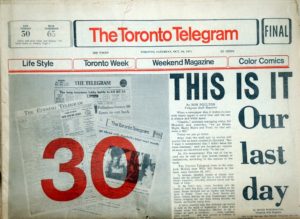 There was a time when Toronto had three daily newspapers – each having several editions. It was a battle royal until the “Telly” folded. Thanks to technological evolution it now only takes only a couple of keystrokes to find anything on almost any topic of your choice. And that will eventually bring the traditional news networks and papers to their natural conclusion – and perhaps spin-off some other medium. Sure there will be still be some real news on the internet but you’ll have to search to find what you want among the blogs, opinion columns and fake news stories.
Objectivity is in the mind of the beholder these days, it seems. Otherwise how could so many seemingly intelligent people who look at the same facts come to alternate conclusions. Was the crowd at Trump’s inauguration larger than the one at Obama’s? Did Russia really hack into US political party computers? Are the high costs of electricity in Ontario due to Mike Harris’ deregulation or McGuinty’s green energy?
Trump has coined the term ‘fake news’ though we all know he is the master of all fakers. Truth can be what we want to believe it to be. And the guy who has become the US president, like in the fable about former president Washington, cannot tell a lie.
But the folks who make and run much of the internet are trying to do something about fake news. Google and Wikipedia, and even a United Nations agency, have stepped up to the plate promising to find ways to identify and reduce that problem. Good luck to them.
 Milla Pickfield started an internship as a journalist interviewing the Chief of Police. She aced it. Bottom line is that it is everyone for themselves when it comes to information and mis-information. And perhaps the quickest way to authenticate a story is check who else is carrying it. Peer review for professional journals includes the consideration of bibliographic sources, above and beyond the essence of the story itself. So shouldn’t we all be as careful?
And that means it becomes our responsibility, each and every one of us, to exercise vigilance over what we read and what we believe to be true. The old adage that ‘news is what’s in a newspaper’ is no longer valid. It might just be fake reporting or unsupported opinion.
This weekend the Canadian Association of Journalists is holding its annual convention and awards for Canadian journalism in Ottawa. I’ll be there looking for some answers on this topic, but I won’t be holding my breath.
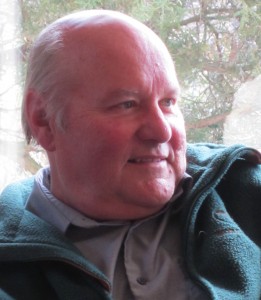 Ray Rivers writes weekly on both federal and provincial politics, applying his more than 25 years as a federal bureaucrat to his thinking. Rivers was a candidate for provincial office in Burlington in 1995. He was the founder of the Burlington citizen committee on sustainability at a time when climate warming was a hotly debated subject. Tweet @rayzrivers Ray Rivers writes weekly on both federal and provincial politics, applying his more than 25 years as a federal bureaucrat to his thinking. Rivers was a candidate for provincial office in Burlington in 1995. He was the founder of the Burlington citizen committee on sustainability at a time when climate warming was a hotly debated subject. Tweet @rayzrivers
Background links:
Newspapers – Newspapers Dying – Columnists vs Bloggers – US Fairness Doctrine –
Truth – Tump’s Truths – Media Bubble – Google and Fake News – Wiki and Fake News –
UN Fake News – Fox vs MSNBC –

 By Ray Rivers By Ray Rivers
April 21st, 2017
BURLINGTON, ON
Since the time of Adam and Eve I had been doing my own taxes. But every year it just gets more difficult – like swimming upstream against a current of bureaucratic nit-picking and think-speak. So I finally got a good accountant and that got the Canada Revenue Agency (CRA) off my back.
I hate manually filling-in all the forms and schedules – hate the repetition – hate the tedium of it all. So back as far as the eighties I wrote a program that paralleled the official one but reduced the quantity of white-out I’d have to use. Eventually I just adopted one of the available commercial spreadsheets. I suspect that annoyed the CRA crowd, even though I still used their line numbers as points of reference.
 Filling out forms – exasperating. There is nothing illegal in using another format to file your tax declaration, though it is likely more challenging for the tax man. And although the CRA folks were mostly polite about my little eccentricity, CRA registered its discontent with my non-conformist behaviour by hitting me with one audit after another, almost before I could say non-refundable tax credits.
The other day my accountant forwarded me the tax return he had prepared for review. And after I’d printed the entire software file my printer ran out of toner – one hundred and nineteen pages. I’ll bet even Donald Trump has fewer pages to his returns, even with that messy US tax code. Not that anyone is likely to ever see them.
So, as I was poring over these 119 pages, trying to stay awake, with one eye on The Daily Show, this guy, Austan Goolsbee comes on the big screen. He is a professor of economics and was the former chair of President Obama’s Council of Economic Advisers. So he should know something about the economy. Then he gets asked about President Trump’s plans to reform the US tax code.
 “The best thing government could do is to actually prepare our tax returns for us”. His point was that the authorities have collected all of the information from employers, brokers, banks and charities and have trained staff at the ready. Gestalt – just what I was thinking – what they do in New Zealand. Of course such a ground-breaking innovation would send the share price of H & R Block through the floor. But I don’t have any of that company’s stock anyway. “The best thing government could do is to actually prepare our tax returns for us”. His point was that the authorities have collected all of the information from employers, brokers, banks and charities and have trained staff at the ready. Gestalt – just what I was thinking – what they do in New Zealand. Of course such a ground-breaking innovation would send the share price of H & R Block through the floor. But I don’t have any of that company’s stock anyway.
Still something tells me that isn’t going to happen – it makes too much sense. But really, shouldn’t filling out your tax return be as easy as balancing your bank account? So if CRA won’t fill out our forms for us, the least they could do is make it easier for the rest of us. How about a standardized CRA software package which you can access online for free – or placing the tax form itself online in a conversational fillable format?
Now that CRA has stopped mailing out tax forms, shouldn’t they replace the old 19th century manual forms with something more modern and user-friendly. And what could be more convenient for most of us than an app for our laptops, I-pads or smart phones. And a program that avoids generating 119 pages for a relatively simple tax return.
Our tax system is long overdue for re-invention. Brian Mulroney was the author of the last major change to our income taxes, back in the late eighties. Most folks will remember him for introducing the dreaded GST. But as importantly he undertook the ‘simplification’ of our tax system.
So instead of personal deductions, which we all understood, we now have these complicated and confusing credits and non-refundable credits. In the end his reform was about cutting taxes for the wealthy. Simplification was a ruse, a diversion from his real plan of cutting tax brackets and taxes for the wealthiest Canadians.
 Which year was this for? The only simplification was to make the system less progressive. After all cutting taxes and remaking the social state was a fashionable conversation piece with him and his pals Margaret Thatcher and Ronald Reagan. And that made him the architect of the ongoing trend of widening the income gap between the wealthiest and the rest of us in Canada.
Mr. Trudeau has cut an ambitious agenda for his government. And tax reform is probably not the highest priority. But his last budget was greeted with sound of yawns all across the country. Oh and emerging protests at the 300 page size of his financial bill, for a government that has committed to eliminate omnibus legislation, is not doing him any favours.
Tax reform is long overdue. Trudeau’s first budget inadvertently started the process of making our taxes more equitable and even a little less complicated, with the elimination of some Harper era tax credits. So why not do what Mulroney failed to do? Why not take a shot at really simplifying our tax system, perhaps along the lines of what New Zealand has successfully done.
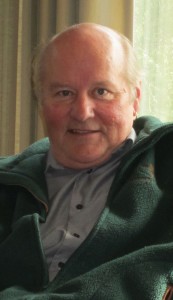 Ray Rivers writes weekly on both federal and provincial politics, applying his more than 25 years as a federal bureaucrat to his thinking. Rivers was a candidate for provincial office in Burlington in 1995. He was the founder of the Burlington citizen committee on sustainability at a time when climate warming was a hotly debated subject. Tweet @rayzrivers Ray Rivers writes weekly on both federal and provincial politics, applying his more than 25 years as a federal bureaucrat to his thinking. Rivers was a candidate for provincial office in Burlington in 1995. He was the founder of the Burlington citizen committee on sustainability at a time when climate warming was a hotly debated subject. Tweet @rayzrivers
Background links:
Income Taxes – Rationale of Taxation – Simplifying – Sales vs Income Tax –
More Sales Tax – One Tax – Eliminating Tax Credits – Last Budget –
New Zealand Tax Simplification –

 By Pepper Parr By Pepper Parr
April 18th, 2017
BURLINGTON, ON
The Halton District School Board Program Accommodation Review Committee (PARC) has been wound down and thanked for the superb job they did. The community now waits to see what impact their deliberations will have on the report Director of Education Stuart Miller delivers to the public and the trustees this Friday.
The report is to be published on line by Board Staff at 6:00 pm on Friday. (Hopefully the web site will manage to handle the demand for the report.)
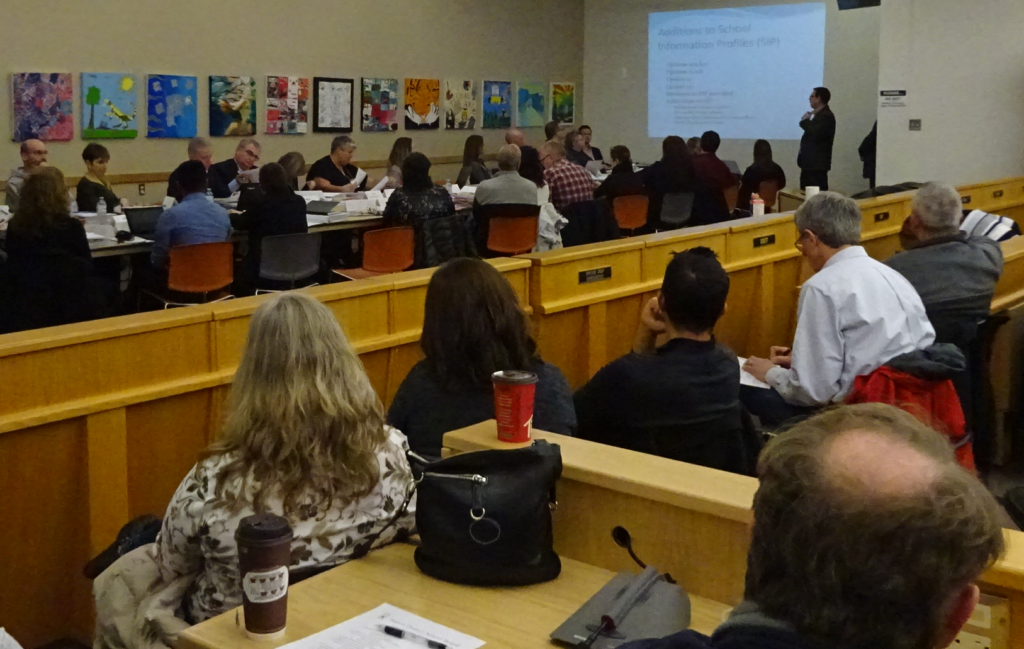 Halton District School Board PARC committee meeting while public observes the deliberations. It was a committee that required a couple of meetings to find itself – many of the people did not know each other very well or at all.
Many of the people on the PARC had serious concerns with the process that was being used. Central high school parents challenged the Board on the approach it was taking to what was a new process put in place by the provincial government. The high school parents lost that argument.
Add to this the significant concern with the Central high school choice of Marianne Meed Ward as their nominee to the PARC. Being the member of council for ward 2 and agreeing to serve on the PARC did not sit well with many.
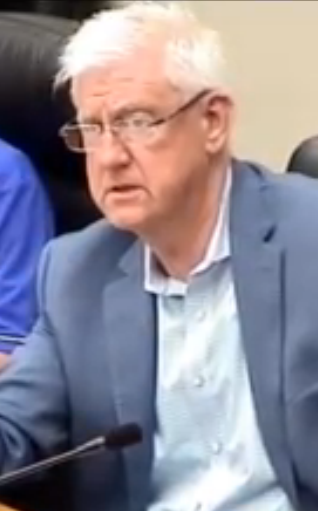 Ward 5 City Councillor |Paul Sharman. Bateman high school is in his ward. He had to be seen going to bat for them. Burlington city council was firm on not getting involved – that was until Bateman high school was listed as a possible school closure – that brought Ward 5 council member Paul Sharman into play. He strode into one of the PARC meetings to observe for he now had political skin in the game.
He then brought a motion to have the city write a letter to the Minister of Education to bring a halt to the PARC that was meeting in Burlington. That vote at city council lost 5-2.
But Sharman had shown that he would go to bat for his people – which was his purpose from the get go.
Meed Ward has always been a feisty member of Council – she was one of the more active delegators to city council before she was elected and she was the member of council who asked more questions than any other member of council once she got herself elected in ward 2.
She would call for recorded votes frequently and on one memorable occasion she had her colleagues on their feet five times for recorded votes. It was at that point that we saw just how much the members of Council could roll their eyeballs.
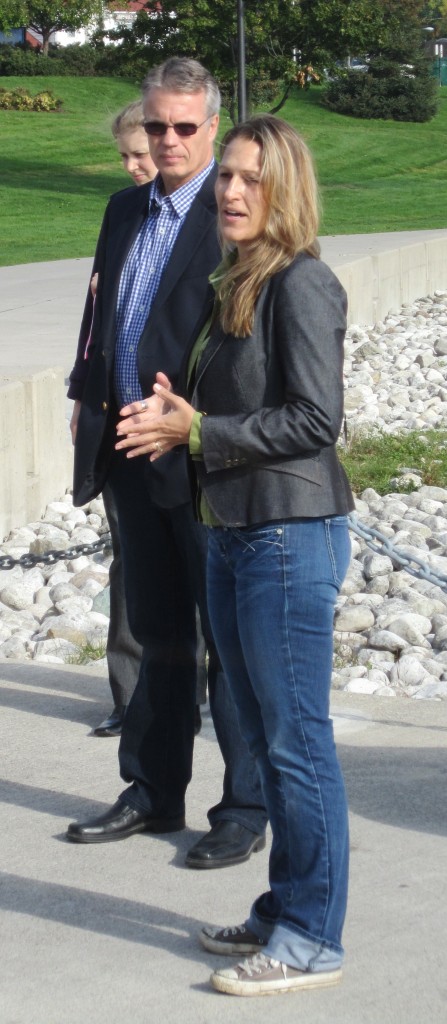 Councillor Marianne Meed Ward with the Mayor in Spencer Smith Park. Many hoped the same “in your face” Meed Ward would be seen at the PARC meetings. For the most part that Meed Ward didn’t show up.
She was active, she asked solid questions and was supported by a parents group that did some fine research and supported her with demonstration after demonstration.
But the voice we heard at the PARC meetings wasn’t what many had expected.
Was Meed Ward curtailed at all by the objections to her being one of the Central high school PARC members? Curtail isn’t a word one would normally apply to Meed Ward.
Her colleagues on city council weren’t the least bit pleased – they have never been pleased with the way Meed Ward does politics in this city.
Some felt that if Meed Ward could lead the charge to save Central high school she would be seen as a shoo in for Mayor when the 2018 municipal election takes place.
The woman who has led many charges at city council wasn’t seen that often – if at all – at the PARC meetings. Admittedly she wasn’t in an environment she was familiar with – but then none of the PARC members knew much about the workings of the school board.
During a meeting of Central high school parents Meed Ward reported to them and said that while she was basically an optimistic person – she was concerned about the direction the discussions were going in.
Shortly after that meeting at the Lions Club – an at first subtle shift began to take place within the PARC and the option the Board Staff put forward to close both Central high school and Pearson began to lose to the idea of not closing any of the high schools.
That option was the clear choice of the PARC committee when it was disbanded.
The Director’s report will be released Friday – if the recommendation Director of Education Miller makes to the trustees is to not close any of the high schools the PARC will get much of the credit – Meed Ward will be seen as just another member of that committee.
If Miller, no matter how reluctantly, recommends closing Central, that community will erupt. What role will Meed Ward play in that eruption? It is not going to be pretty. She is no longer a member of the PARC – there is no PARC – it was disbanded.
She will certainly protest as a parent but the clout she had as a PARC member will have evaporated.
There were several members of the PARC that were exceptional in the way they moved the agenda; at times they came close to taking it out of the hands of the PARC Chair, School Board Superintendent Scott Podrebarac.
 What impact would the closing of the downtown high school have on the city? Much bigger than most can even imagine. It will be interesting to see just how Meed Ward handles herself when the report is released on Friday.
Everyone will be reading the report carefully – we do know that it is going to be a lengthy document with every department at the School Board having a significant impact.
Burlington can expect to see two things during the weekend: what kind of a Director of Education is Stuart Miller going to choose to be and how will a candidate for the office of mayor position herself on the most significant decision about the health and long term welfare of the city we have had to face in the last 15 years.
It will be interesting.

 By Ray Rivers By Ray Rivers
April 14th, 2017
BURLINGTON, ON
 “acknowledging the existence” This is one of those years when Orthodox and regular Easter fall on the same day, and that is plunk in the middle of Passover. Easter is arguably the holiest of Christian holidays, but it, like religion in general, is declining in North America. It used to be that ‘Happy Easter’ was as common a greeting this time of year as Merry Christmas is around that season. But I can’t remember anyone even acknowledging the existence of the holiday this year, let alone recognizing its religious significance.
Almost a quarter of Canadians consider themselves non-religious now, double what it was less than thirty years ago. About two-thirds of religious folk call themselves Christian, down from over 80% in the early 1990s. And despite all the concern over Sharia law and that Islamophobia, followers of Islam made up little more than three percent of all Canadians according to the last poll taken in 2011. Of course that survey wouldn’t account for recent refugee admissions from places like Syria.
Those claiming to observe the Jewish faith are barely registering these days, the third leg of middle eastern theism – has fallen to a mere one percent. The numbers of all those believers can be expected to further decline over time, despite the ongoing influx of immigrants coming from Asia and Africa, and bringing their faith with them. This trend to less religiosity in our lives, which is also occurring with our neighbour south of the border, may have something to do with the advent of multiculturalism, or the relative affluence of our society, or maybe what’s on the TV.
 The Easter Bunny is real. But we still have Easter. It’s a statutory holiday. And Easter does have real meaning for children big and small. It’s the holy Easter Bunny. A couple in Hamilton had their foster children taken away from them because they refused to teach the kids that the Easter Bunny is real. They had miraculously escaped such punishment at Christmas, even though they admit to not teaching the youngsters that Santa was as real as Jesus.
But then Christmas has a more powerful message – it’s that presents are under the tree. Besides, a little baby born in a manger is a far more romantic concept than some guy dying on a cross, getting buried and then rising up from the dead. So you need to teach your kids the real meaning of Easter or you get what you deserve – to lose them to someone who will.
It’s the Bunny stupid! And what better way to celebrate the Bunny than with a Bunny Hop. Hamiltonians will join a number of communities across Canada, though not Burlington yet, in celebrating this adolescent excuse to drink large volumes of a favourite hoppy beverage… and party. Think of the Bunny Hop as replacing the time honoured Easter Parade – screw the bonnet, let’s get drunk.
But this year there is even more reason for those young adults to celebrate, Canada’s Easter bunnies in Ottawa are going to start letting us fill our Easter baskets with more than chocolate and alcohol. The government has just introduced legislation to legalize whacky-tobacky, which means that pretty soon it’ll be legal to grow real pot as your pot plant, share a little tea with Goldie and ‘bogart’ that joint – unless you are under age, of course.
 Arguably is less harmful to our health than the alcohol, salt and sugar we currently consume? Keeping drugs out of the hands and mouths of our children is the official reason for legislating rather than simply decriminalizing marijuana, or continuing the fantasy that keeping it illegal will keep drugs out of kids’ hands – which it hasn’t.
Once the new law is enacted, Canada will be the first developed nation to have a legal framework that allows its residents to grow and use this substance, which arguably is less harmful to our health than the alcohol, salt and sugar we currently consume.
And that means the Eater Bunny has his/her work cut out. Easter eggs and chocolate for children and booze and bud for their parents. Happy Bunny day to all the readers out there. Keep reading and please feel free to add your voice to the discussion.
 Ray Rivers writes weekly on both federal and provincial politics, applying his more than 25 years as a federal bureaucrat to his thinking. Rivers was a candidate for provincial office in Burlington in 1995. He was the founder of the Burlington citizen committee on sustainability at a time when climate warming was a hotly debated subject. Tweet @rayzrivers Ray Rivers writes weekly on both federal and provincial politics, applying his more than 25 years as a federal bureaucrat to his thinking. Rivers was a candidate for provincial office in Burlington in 1995. He was the founder of the Burlington citizen committee on sustainability at a time when climate warming was a hotly debated subject. Tweet @rayzrivers
Background links:
Religion in Canada – Christianity in USA – The Bunny Hop – Easter Facts –
Canadian Marijuana Bill – More Weed –

 By Ray Rivers By Ray Rivers
April 7th, 2017
BURLINGTON, ON
Were the 1960’s classic film ‘The Graduate’ being shot today, the one word of career advice for our Benjamin would be robotics, not plastics. It’s coming and fast. There are already a number of cars which can park and drive better than you and I. And those cars will obediently come when beckoned more consistently than my dog. The modern day soothsayers and prognosticators are telling us that the future is here and now. And it won’t be long before we’ll all be out of work thanks to automation and artificial intelligence.
Last year one study estimated over 40% of our jobs are at risk, as automation has now moved beyond performing mundane repetitive tasks to the “cognitive, non-routine tasks and occupations, such as driving and conducting job interviews.” And if job interviews can successfully be undertaken by robots, is any management or executive job safe?
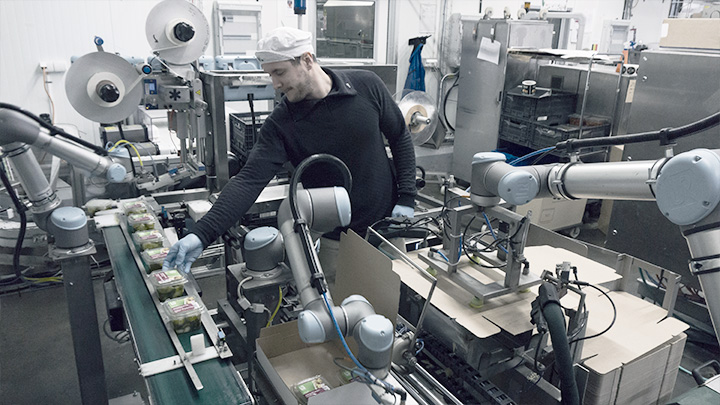 Is this the shift supervisor managing the robots? Robots vary in price but some industrial ones fall into the $50,000 to $100,000 range. That compares well with the annual salary of an assembly-line worker when you include benefits. Providing the robot lasts more than a year, automation can be a good financial investment for a company. And the robot won’t talk back to you, can’t complain of workplace harassment, nor organize a union to demand higher wages.
Bombardier seems to be in the news a lot these days. It used to be a compact family run affair, and apparently still is, though big time acquisitions have transitioned it into a multifaceted corporate monster. And the truth is that non-linear thinking and multi-tasking can be best done more often by some kind of computer than a well reasoned human being. Even intuition, without that fickle human emotion or greed, can be programmed into its logical memory.
 A fortune in subsidies but these aircraft do keep Canada in the high end aircraft business which is where many hoped the Avro Arrow would have put us. That may be Bombardier’s problem – it got too big for its britches – or at least the britches of the family compact that grew this little snow-cat enterprise into the mega transport world. Things go wrong and stuff happens when you lose your focus. And that may account for the bleeding red ink and the backlog in production that has been plaguing its air carrier and rail product lines. It has got so bad that the City of Toronto is contemplating killing its long over-due orders.
So the company went cap-in-hand to the governments and banks and dug up two and half billion dollars in Quebec, in exchange for non-controlling equity trades. And the feds have responded to the company’s earlier request for another billion by awarding it around $400 million in an interest free loan. Ironically the federal money coming after the other investments is considered surplus to requirements. But, it was interest free, so they took it anyway and found a use for it.
 Some of these sleek looking transit vehicles are having a hard time keeping on schedule. Basking in the glow of all this green cash the company decided it was high time to share some of the wealth among its six top executives. It boosted their annual compensation packages by a whopping 50% – to a total of $35 million – almost $6 million each. In its defence, Bombardier drew comparisons to exec comp packages at would-be competitors Boeing and Airbus. And the best way go head-to-head with the big leaguers was match them. And if you don’t have the planes to sell, try matching senior management salaries instead.
Timing is as important in public relations as any other aspect of management. So you’d think the Bombardier exec’s could have paced themselves a little before proclaiming how they were spending this new government money on themselves, acting as if they’d actually earned it from product revenue. So the fact that they were laying off almost 14,000 employees globally with about half of those cuts in Canada, never crossed their minds.
“Qu’ils mangent de la brioche”, are the words attributed to the infamous French Queen Marie Antoinette, on hearing the complaint that the peasants had no bread. Clearly this was not Bombardier’s finest hour. It took the roar of an angry public for the embarrassed execs to announce they wouldn’t immediately be hauling in their new-found loot, but rather phase-in their pay raises over three years.
As if delaying their inevitable bonanza would appease those now contemplating feeding their families on federal EI payments. It would be interesting to know how many workers are being replaced by some kind of machine. And perhaps some of those now unemployed are wondering when somebody will invent a robot which can better manage an entire company, like the one they used to work for.
 Will they be given the right to vote? Still the governments of Canada and Quebec are standing behind the company and the wisdom of their investments. The PM shrugged off the exorbitant compensation packages claiming he respects the workings of the free market. Except government subsidy is usually not the first thing that comes to mind when one thinks of the free market. Still economic nationalists would be hard pressed to argue against public financial support for one the most significant Canadian companies ever.
And according to Transport Minister Marc Garneau “the C-Series is an extraordinary plane”. So as this country celebrates its 150th birthday we should take a moment to recall another extraordinary plane, the AVRO Arrow of some 60 years ago. The Diefenbaker government will long be remembered for failing to support the development of this advanced jet fighter.
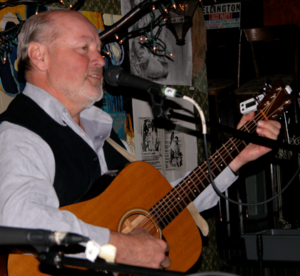 Ray Rivers writes weekly on both federal and provincial politics, applying his more than 25 years as a federal bureaucrat to his thinking. Rivers was a candidate for provincial office in Burlington in 1995. He was the founder of the Burlington citizen committee on sustainability at a time when climate warming was a hotly debated subject. Tweet @rayzrivers Ray Rivers writes weekly on both federal and provincial politics, applying his more than 25 years as a federal bureaucrat to his thinking. Rivers was a candidate for provincial office in Burlington in 1995. He was the founder of the Burlington citizen committee on sustainability at a time when climate warming was a hotly debated subject. Tweet @rayzrivers
Background links:
Robots –
Automation –
Replacing Workers – Machines Taking Jobs –
Bombardier – Federal Money –
Bombardier Subsidy –
Trudeau Defends Subsidy –
Bombardier Pay –
More Pay –

The Burlington Gazette is a member of the National NewsMedia Council. This is the body in place to protect the public interest and ensure that media are fair, not always something that is easy to define.
Every quarter we get an update on what the association is doing and what other news media are up to.
We thought we would share what John Fraser, the president of the NNC, had to say.
Fraser has a rather impressive bio – he was the first North American reporter to be posted to China when he was with the Globe and Mail. He was also a former Master of Massey College. He is also a shameless punster; don’t let him get started.
 By John Fraser By John Fraser
April 6, 2017
BURLINGTON, ON
Opinion-mongering is one of the great bulwarks of traditional journalism. If you look at the history of newspapers, it will inevitably lead back to the glory days of London’s “Grub Street” periodicals and political broadsheets in the early 18th-century, generally favouring one party over another. Within a few decades, the business of music and theatre reviews also started up, either in their own broadsheets or attached to leading periodicals.
 There is, these days, a kind of return to these foundational roots in the rapid and happily unregulated rise of specialized digital journalism platforms. iPolitics, for example, has started asserting itself on the national consciousness as an important source of knowledge on our political and governmental life. Ditto for impressive digital-only publications like The Tyee; or some of the newest members of the NNC like Musical Toronto or Queen’s Park Today. They come about because there are readers who care about the things these platforms report and comment on and they want to stay informed. They also like the angle or perspective taken, and especially the sharp commentaries. There is, these days, a kind of return to these foundational roots in the rapid and happily unregulated rise of specialized digital journalism platforms. iPolitics, for example, has started asserting itself on the national consciousness as an important source of knowledge on our political and governmental life. Ditto for impressive digital-only publications like The Tyee; or some of the newest members of the NNC like Musical Toronto or Queen’s Park Today. They come about because there are readers who care about the things these platforms report and comment on and they want to stay informed. They also like the angle or perspective taken, and especially the sharp commentaries.
The diffusion is equally a challenge for readers as it is for an organization like ours which strives to offer a legitimate and independent service to deal with disputes or errors or misunderstandings, whether on a digital service or the printed page. It’s the misunderstandings about opinion mongering that I want to focus on in this issue of the NNC Newsletter. Columnists and reviewers often have strong opinions and strong opinions invariably arouse reactions, one way or another.
A big part of the NNC mandate and our day to day work is to explain to complaining members of the public the traditional role of critics and reviewers, whether in the arts, the legislature, or even the dining rooms of the nation. When an outraged bistro owner feels a food critic has been unfair in Toronto Life, or an angry patron of the Canadian Opera objects to a critical evaluation of a performance, or a political party member feels there is a particular bias in a column about his or her favourite public figure or issue, our team at the NCC spends a decent amount of time explaining the role of the columnist or critic. It is part of the service, you might say.
 John Fraser I am a former arts reviewer and former political commentator, so believe me I know exactly how exercised readers can get about opinion mongering. I often find myself explaining what I firmly believe is the matrix of a healthy political or performing arts life in any community and it usually involves engaging the public through reviews or commentaries that are studied in their provocation. If, on the other hand, a writer makes factual errors, it is a legitimate source of complaint with which we always deal very seriously. If it’s a matter of “he says, I say”, then we try to put it in the context of acceptable community standards and practice.
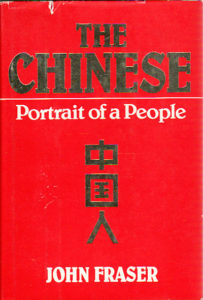 John Fraser wrote an award winning book on his experience in China where he reported for the Globe and Mail. This usually works to the complainant’s satisfaction, but sometimes it doesn’t. In one such encounter we have had recently, we listened for an age (and several times) to a complaint about an editorial in a leading newspaper. The complainant was exercised by the fact that there were conflicting facts which emerged after an editorial had been published (a day later in fact). His solution was to ask the NNC to order the newspaper to add a note to the digital version of the editorial which said, in effect, “This was researched and written before counterbalancing facts emerged.”
We tried to explain that this was something that could be put on almost any article anyone published. The logic escaped him and he is probably still complaining to anyone who will listen that both the newspaper and the NNC lack 20-20 hindsight – or is it foresight? Hindsight, in fact, we have. Foresight is for unanswerable or unresolvable complaints.

 By Greg Woodruff By Greg Woodruff
April 6th, 2017
BURLINGTON, ON
City council will begin discussion of the draft Official Plan this week. Opinions are already being formed.
There are so many problems with Burlington’s official plan update that it’s hard to zero in on the most problematic element. Leaving alone for a moment the massive green space loss or the complete lack of any mathematical forecasting, the transit plan is truly insane.
My largest problem when running for Regional Chair in 2014 is that I just could not get people to accept what the cities future transit plans actually are. People would just say “That is crazy” and look at me like I must not understand the plan. Either read what is coming out of the city or take my word for it. The future of Burlington is city wide deliberately induced gridlock.
I realize that this is so divorced from reality that the average resident of Burlington simply cannot accept this is the cities plan. It is simple – keep jamming people in until roads are mostly impassible and largely slower than walking. People will then seek “alternatives” once they realize they can walk or bike to a location in just hours vs multiple hours of driving. If you are disabled, elderly or have a schedule that doesn’t support biking, stay home or get out of Burlington.
The first problem is that I would say you need a public mandate to do this. This certainly does not exist. The draft says the public must “Reprioritize decision-making relating to mobility” (Page 14 in the link below). Right now for example you might like to drive to the gym. In the new city walking and biking should be your forms of city recommend exercise. In the future city staff will decide what you do, how and when you move around. The city needs to execute the mandate of citizens, not try to force everyone to do as they think we should.
The second problem is that the transit plan cannot withstand even light mathematical examination. It can’t possibly achieve its own goals. You won’t see numeric calculations coming from the city – because they won’t add up. To believe that 300,000 people are place-able in Burlington with “No New Car Capacity” (Page 15 in the link below) is to believe we will have pedestrian rates orders of magnitude higher than Paris France. As I delegated to council:
Even if you line up Paradigm developments along every possible place all the way down Plains road – you will never get a pedestrian commercial base. There is no mathematically possible pedestrian city on a single straight road. Cities are built in grids for a reason – it is the only way to get transit time low and have the density for a partly pedestrian customer base.
The last problem and most deeply troubling aspect of this is the underlying theory behind it. This mentality places the city in direct opposition to you. Your goal might be to take your kids to soccer practice. This “unsustainable transit pattern” makes the city wish you didn’t. You want to visit your Mother after work – the city wishes you didn’t. It’s all to pretend that intensification doesn’t need increased infrastructure to support it. That an infinitely increasing population doesn’t cost anything in money or environment because the city now rations “what is” out.
They can’t figure out a transportation strategy for this mess of intensification. So now “untransportation” is desirable. Not enough water – the public must “Reprioritize decision-making relating to bathing.” Not enough parks – the public must “Reprioritize decision-making relating to sports activities.” This “reprioritization” is to no longer do what is best for yourself, but instead do what city planners have rationed out for you.
Since we still live in a democracy – it will not work. Once the main streets are nothing but micro businesses very few trips will be to them; just past them. The constant gridlock will be the largest issue and people will not care beyond mobility. This will give rise to and elect a class of politician that will run on and expand the road base. Though since staff have worked deliberately to make this difficult, the roads will now expand in ugly and awkward way.
If you want 300,000 people in Burlington then we need developments totally concentrated in the down town core – it’s the only place with a grid. Yes, you will need an aggressive walking, biking and public transit strategy. But you will also need the major arteries of Burlington expanded to 6 lanes, plus a dedicated bike path, plus a large public walking space. You can get into fanciful debates as to what you want to do in those extra lanes – single passenger cars, rapid bus transit, street car, etc. But they need to be reserved and planned as if they will exist.
There is no possible benefit to this gridlock – hundreds of thousands of cars idling and caught in congestion will have a far higher environmental footprint than a hand full of bikers can ever offset. Congestion helps big box retailers and hurts small business – this can only lead to greater commercial concentration. The idea “if you build roads people are going to use them” so if we stop building them people will then not use to road we didn’t build.
This is just idiocy. If you feed starving children they are just going to keep eating and eating; to a point yes. If you provide houses with water people are just going to keep bathing and bathing; to a point yes. However I consider the ability to feed, bath and get my kids to soccer – all as positives.
I’m pretty sure the rest of Burlington does as well.
Background link:
Official Plan report to city council committee
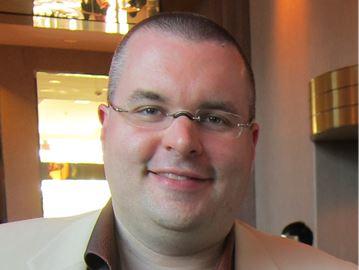 Greg Woodruff is an Aldershot resident who rant for the office of Regional chair in the last municipal election. Greg Woodruff is an Aldershot resident who rant for the office of Regional chair in the last municipal election.

 By James Smith By James Smith
April 2, 2017
BURLINGTON, ON
The next few months will be difficult for many Burlington parents and students as the Public Board decides the future of several schools. This issue is hardly new to Burlington or Halton, the phenomenon of is being played out throughout Ontario, Canada and North America. For example, Hamilton has closed 14 schools since 2003. Shifting demographics call for creative solutions. Some change is coming to Burlington Schools, what that change will look like is far from determined at this point.
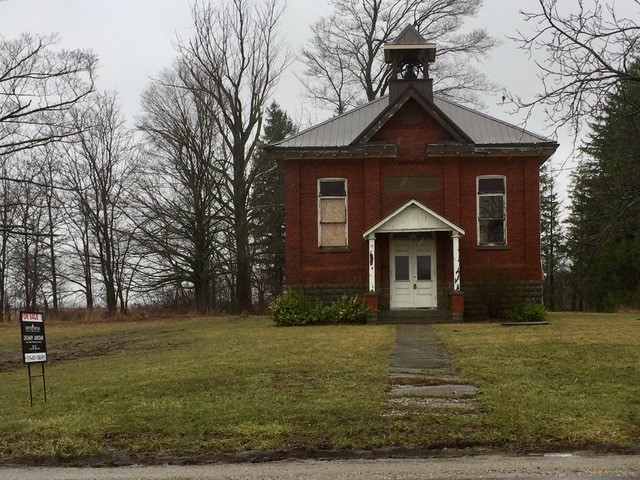 While Burlington’s high schools are not quite this old – these old country schools have disappeared and been re-purposed. In the past, boards have taken the relatively easy route (if closing a school and the ensuring protests they cause can be called easy) when a school is determined to be redundant; they have applied to municipality for re-zoning, then sell the land to the highest bidder. South East Burlington in 1987, when we moved there, had two separate schools, one high school and five public schools within walking distance. Soon both Elizabeth Gardens and Breckon Schools were closed and St Patrick School, the school our kids attended, hung on by its fingernails. At one point only having 75 students!
Having fought hard to keep our local school, I understand what parents are now going through in their attempt to keep a local school. In our case we had a little bit of luck on our side, many of the original empty-nester home owners were selling to families with a couple of kids, so more children were moving into the neighbourhood. More importantly, the former Shell refinery lands west of Burloak, north of New Street meant expanded enrollment significantly. Neither new development nor is intensification is likely going to be an answer to expand enrollment for the schools at risk. The challenge now is for citizens who’s neighbourhood schools face closure, to transition from protest to vision.
Once the decision to close a school has been made, the challenge is to question some deeply held preconceptions; no easy task. The first preconception parents especially need to rid themselves of is the myth of the local school, especially when it comes to a high schools. Local schools, the kind that parents will often define as those as “within walking distance” are more and more not places children walk to. Sure some kids walk, but a significant number of children of all ages are now chauffeured to and from school. One just has to look at the infrastructure put in place to accommodate the pick-up delivery of children in cars. Passing by a school at opening or dismissal, makes one pine to be at the Mall the last weekend before Christmas by contrast. How do local traffic jams add to a community?
Many will talk about the loss of so called open space. Schools often have rather than open space something more akin to a green deserts surrounding the school building. Rarely used manicured lawns, a landscape design element left over from the plan books of Victorian through post war planners that serves little or no purpose; we’re just used to having them. We are used to seeing these areas with nothing there, so we want to keep these green dead zones. The green deserts surrounding all schools, but especially those to be closed, are resources that presently goes wasted. Overcoming these and other preconceptions and understanding the opportunity in school closures is a big and difficult first step. I have no illusion this will be an easy process to undertake, but citizens need to be ready to embrace this change, even reluctantly.
Once the decision has been made to close a school; who best to plan and execute the redevelopment? As stated the old model was a quick rezoning to Single Family Residential, and sell twenty or 30 residential lots to the highest bidder. While the “take the money and run” approach has served the board in the past, times have changed. Given the time and effort of those who have participated in the PARC exercise have demonstrated, and the controversial nature of the decision to close schools, the Board owe the communities and the city a more inclusive re-visioning exercise.
The board of education, by ownership and necessity must be a partner in the process, and realize most of the financial return, but the lead should be taken by the city of Burlington as the city will have to manage the results of the process. I’m rarely a proponent of the 3P model, but in this case I feel a public private partnership is the best way to maximize the return to the board and the city in developing these assets.
Did I say the city? By the city I don’t mean the politicians nor the planning department. As professional and well meaning as city planners may be, this exercise should be taken up by an outside urban planning firm who doesn’t develop and plan track housing. Preclude those firms with a history of developing planning with, and for, the city of Burlington should also be a condition. In other words, an open competition rather than one from the usual suspects. One consideration would be to fund a competition where three semi finalist firms are paid to work-up general, order of magnitude proposals. This way citizens can wade in on what firm’s vision is in the best interest of the the city at large.
In such a process the city’s role should be limited to setting the general goals and parameters. These guidelines should be as loose as possible to allow the bidding firms as much creative leeway as possible. By awaiting proposals from the winning planning firm prior to changing the zoning of former school property, the city can avoid the mistake of regulation that limits development of a novel proposal. Interesting creative uses shouldn’t be precluded from the beginning due to zoning constraints. Plan, then zone. Part of any redevelopment should include re-purposing some or all of the existing school buildings wherever practical, and the development of the site of community amenity assets should be based on input from the neighbours and citizens in general
Many people find the idea of giving up on what they see as “their school” surrender. Many will feel at this point surrender is premature. Change is likely coming. The best way to prepare for change is to start considering and examine one’s prejudices and to start to imagine what the second best alternative might be. Burlington might be a better place as a result of this kind of exercise.
James Smith is a is a former resident of Burlington and is a contract Designer, who includes Phillip H Carter Architect and Planning as one of his clients.

 By Pepper Parr By Pepper Parr
March 24th, 2017
BURLINGTON, ON
During the Program Accommodation Review (PAR) deliberations taking place at the Public School Board, and in the comments made by people in the Gazette, mention is often made of how the 1800 empty seat problem could be solved if the Catholics just moved into the public schools.
Words like that reflect a serious misunderstanding of the country’s culture and constitutional history. The existence of the Catholic schools is far more than culture and constitutionality. We asked former Halton Catholic District School Board chair Jane Michael to explain the reason we have Catholic schools. Here is what she had to say:
When my kids were growing up, I made it clear that to get anywhere in life, you had to set clear goals, have a very strong work ethic and you had to be honest. A very high value was placed on education. Coming from parents of immigrants, on both sides of my family, that value was instilled very early in life. In short, there were high expectations to work hard, learn and succeed.
We chose to send our children to Catholic school.
I have seen it written on many a wall –
Christ is the reason for this school. He is the unseen but ever present teacher in its classrooms. He is the model of its facility and the inspiration of its students.
 St Anne Catholic elementary school in the Alton Village In the Catholic schools, in addition to the teaching of the Ontario Curriculum, a routine of praying is included, a respect for God and for the Church as well as for oneself. The students embody multiculturalism. The educators are united in teaching from a moral compass.
There has been a growing discussion around a one school system. Still, all three political parties are on record as supporting the Catholic school system as an integral part of publicly funded education in Ontario. In particular, the discussion revolves around a one board system. This ignores the fact that Ontario has four overlapping school boards.
Catholic education is part of Ontario, rooted in history. In 1867, the British North America Act guaranteed the educational rights held by minorities at Confederation. I firmly believe that the solemn promise made at the time of Confederation should be kept. It is hard to ignore the wishes of 650,000 children. Ontario is offering publicly funded French schools, Art schools, gifted schools, plus AP/IB schools.
Catholics have paid for their own system and despite changes in funding, still do so today. Catholics are more than one-third of the province’s population, and if I add up Catholic school board supporters, I may say that we are self-funded, as opposed to publicly-funded. Catholic schools have maintained their place in Ontario’s public education system for almost 170 years. It is the Constitutional mandate of Catholic schools to provide Catholic education to Catholic students.
The Catholic school boards have the preferential right to hire Catholic teachers, committed to the goals of the Catholic school system This right is extended to publicly funded social welfare agencies. Catholic high schools admit non-Catholic students, providing open access. Catholic education has grown to include a supporting strong infrastructure of Catholic organizations. Ontario’s French language school system is also divided into public and Catholic. The French Catholic system is supported by French Catholic parents and ratepayers. Ontario Catholic school boards consistently meet or exceed provincial expectations.
My kids’ Catholic elementary and secondary schools were and are, deeply invested communities. Our community, one of warmth and faith, prepares the mind and the soul for the future. Teaching combined academic lessons with those on morals, and good behaviour, and is consistent with religious instruction throughout the whole year. For my family, that was the best of both worlds. Everyone goes through difficult times in life, and going to Catholic school and having faith is very important in order to survive these times.
Catholic education focuses on the entire child; their mental, physical and spiritual selves, as well as core values we have attempted to instill at home. Education is, and always be, a priority in my home, and the school reinforced the need to study and be decent human beings.
Having God in the school makes these kids grow into pretty great people. And, it’s not about being indoctrinated into any one religion. Catholic schools teach the kids to respect others and their religions as well. Catholic Boards mandate that students in Grade 11 study World Religion. When our kids came home from school, they told us of their experiences with the Church and school. I think it helps with behaviour once they know what God expects of them. They want to please God as well as others and they want their parents to be happy and proud of them. Understanding other groups and others’ beliefs is an important part of Catholic education’s teachings; respecting and affirming the diversity of today’s world.
Immersion in Catholic school culture, where religious themes are woven throughout classes and extracurricular activities each day made God a consistent presence and force in the lives of my kids and their classmates. I will always choose Catholic schools. Education is an intensely personal family choice. Historically, the education of our children was always conducted by family. That remains today. Kids spend the majority of their day in school. I will always look for what is in my family’s best interest.
Speaking to a high school graduation class, a graduate came up to me afterwards and said: “I didn’t really get it – why going to a Catholic school mattered so much. Now that I am about to leave, I know that God will always be with me, that He’ll always keep me safe, and He’ll help me whatever life has in mind for me. I’m not afraid anymore”.
It doesn’t get better than that.
 Jane Michael is a former Chair of the Halton Catholic District School Board. Jane Michael is a former Chair of the Halton Catholic District School Board.

 By Ray Rivers By Ray Rivers
March 24th, 2017
BURLINGTON, ON
In a couple of weeks the City of Hamilton will be hosting its Big Picture event, an opportunity for the arts and cultural industries to come together and tell city government how to make arts and culture the city’s engine of growth. It’s all part of the economic evolution taking place in Hamilton, a city known as a poor cousin to it’s noisy neighbour, Toronto.
 Decades of pollution that fouled the air and polluted the water and created some immense wealth for a few – certainly not the steel plant pensioners will pictures like this be in Hamilton museums only? Many commercial institutions have long deserted Hamilton, following the sweet smell of money and drifting to that other big smoke. Even the ‘steel-town’ moniker no longer fits since Stelco was raped and dismembered by a US competitor. Hamilton has struggled with its identity for decades, suffering economic malaise and some of the highest property taxes in the province until just recently.
And even twenty years after a forced amalgamation of surrounding area communities, intended to fix the city, it still struggles with its identity. It is not uncommon for suburban politicians to occasionally play the parochially divisive card of what’s-in-it-for-me, threatening progressive initiatives such as transit systems not in their wards. And there is still the odd die-hard anti-amalgamation separatist in the sticks, where I live.
 When the steel plants eventually go – will this become an interesting residential development? Still, the city’s leaders have come to a genuine consensus that Hamilton’s road-map to future prosperity follows the route of developing its emerging arts and culture sector into a thriving industry. After all they’ve seen the numbers. The Conference Board of Canada estimates that municipal investment into the arts returns anywhere from $7 to $12 on the dollar. That beats trying to keep the old steel plant alive.
The Chamber of Commerce agrees with Council, but switching to the right-side of the brain for a community too often focused on steel, coal and electricity is not without its challenges. And there is a lot of competition out there, including a growing list of other communities also looking to break into the arts business big league, and attracting all of that talent for themselves. Recall that good old Hog Town has more than 120 professional companies performing on more than 40 stages, and is third in annual ticket sales globally, just behind New York and London.
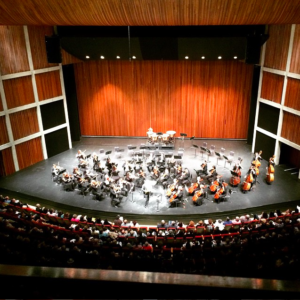 The Philharmonic doesn’t get all that much in the way of funding from Hamilton’s city council Another issue is money. The Hamilton Spectator recently reported that Hamilton remains far behind most other cities in arts funding per capita. It points out that the Art Gallery, the Philharmonic Orchestra and Theatre Aquarius get less municipal funding than other similar organizations across the country. And with Hamilton expected to outperform the national economy this would be a good time to correct that financial imbalance.
But money is not the only impediment to attracting artists and their audiences/customers. City bylaws, zoning and building codes, transportation routes and parking all have a role to play and no doubt will be on the table as part of the discussion of the Big Picture. Then there is the matter of where artists work and sleep – workshops and housing. That used to be an easy problem to solve given Hamilton’s traditionally low housing prices and rental rates.
 There is certainly a base market for the arts in Hamilton. But while we were sleeping Hamilton-Burlington has ballooned into one of the fastest growing housing markets in the country, rivalling and even exceeding Toronto and Vancouver, by rate of change, if not actual value of transactions. Sky-high home prices, low rental vacancy rates, and gridlock are the proverbial chickens coming home-to-roost in TO. So would-be home buyers are heading over to nearby Burlington and Hamilton, driving up prices and driving down accessibility.
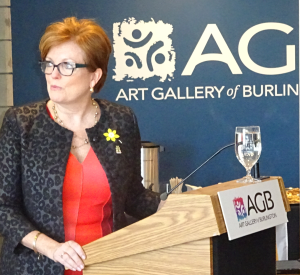 Burlington’s MPP, Eleanor McMahon, who is also Minister of Tourism, Culture and Sport has brought home some bacon for Burlington. Burlington’s MPP, Eleanor McMahon, who is also Minister of Tourism, Culture and Sport, recently announced a new provincial strategy for cultural industries. She points out that the culture sector adds more than $25 billion to Ontario’s economy, supporting approximately 280,000 jobs, and including almost 60,000 folks directly employed in the arts across the province. This is only a strategy, though one expects it will eventually come with some hard currency for that bigger picture the province is promising to paint.
And one has to recall that Hamilton has deep roots and credibility in the cultural arts sector. Karen Kane, James Balfour, Eugene Levy, Martin Short, Lawrence Hill, Steve Paikin, Daniel Lanois, Neil Peart, Rita Chiarelli, Stan Rogers call or called Hamilton their home. Even Rompin’ Ronnie Hawkins, the Hawk, claims he got his start at a local bar in the city. And he’d be a great opener of the event.
 Ray Rivers writes weekly on both federal and provincial politics, applying his more than 25 years as a federal bureaucrat to his thinking. Rivers was a candidate for provincial office in Burlington in 1995. He was the founder of the Burlington citizen committee on sustainability at a time when climate warming was a hotly debated subject. Tweet @rayzrivers Ray Rivers writes weekly on both federal and provincial politics, applying his more than 25 years as a federal bureaucrat to his thinking. Rivers was a candidate for provincial office in Burlington in 1995. He was the founder of the Burlington citizen committee on sustainability at a time when climate warming was a hotly debated subject. Tweet @rayzrivers
Background links:
Big Picture – Economic History – High Hamilton Taxes – Vacancy Rates –
Housing Prices – Hamilton Hot Prices – Hamilton Economy – Arts Drives Hamilton –
Hot Housing Market – World Theatres – Ontario Strategy – Hamilton Artists –

 By Pepper Parr By Pepper Parr
March 23, 2017
BURLINGTON, ON
The Gazette was able to get a short period of time with the Minister of Democratic Institutions, who happens to be Burlington’s Member of Parliament.
A call that was initially planned for a specific time kept being pushed back – her people were great at keeping us in the loop and letting us know that the Minister was going to be needed in the House of Commons for a vote.
When Karina came on the line she was her usual friendly and for the most part open person.
We wanted to know what has changed in her life in the past two years? She went from being the candidate who did a superb on the ground grass roots campaign that came close to shocking Mike Wallace – the Member she defeated.
 Karina Gould with members of her campaign team. Gould did what everyone who wants to get elected has to do – get out on the street and put your face in front of people and let them get to know the real you. She did that and she won – handsomely!
When she got to Ottawa and the Prime Minister’s office began to look at the talent he had to work with and realized that Gould had some unique experience as a result of her work with the OAS – the Organization of the America States, which is organization that represents interests of the 35 independent states of the Americas.
She was now more than just a pretty face.
They made her the Parliamentary Secretary to the Minister of International Development and La Francophonie
Few, very few political novices get given jobs like this when they have next to no House of Commons experience. Gould got put on a fast track and had to learn – quickly. And she did,
Then – not much more than a year later she was asked to become part of Justin Trudeau’s Cabinet. That sort of thing just doesn’t happen every day. A women who has yet to celebrate her 30th birthday is now a Member of Cabinet.
We wanted to know how she was handling these very big and sudden changes.
 A team player! The interview was Ok – but the first part didn’t resonate with us.
We got the ‘I am proud, privileged and honoured to be able to serve the people of Burlington’.
They all say that – but what does it mean? I didn’t know so I kept asking questions – and kept getting the Pablum formula answers.
So I shifted the questions and asked how she was finding the job. Gould talked about the people who stepped up and guided her through the process of learning to become a Member of the House of commons. She said she was fortunate to have people like Cabinet Ministers McCallum and Bennett take her under their wing – and she was indeed fortunate to have these two people guide and direct her. They saw the promise and were prepared to put in the time Gould needed.
I still didn’t think I had gotten to what it is that makes Gould the person she is – the Pablum answers were not what I was looking for.
Gould then began to talk about values – and it was at this point that the real person could be seen. Karina Gould is a part of a family that knows what the Holocaust was all about. She doesn’t wear it on her sleeve – it is just a part of who she is
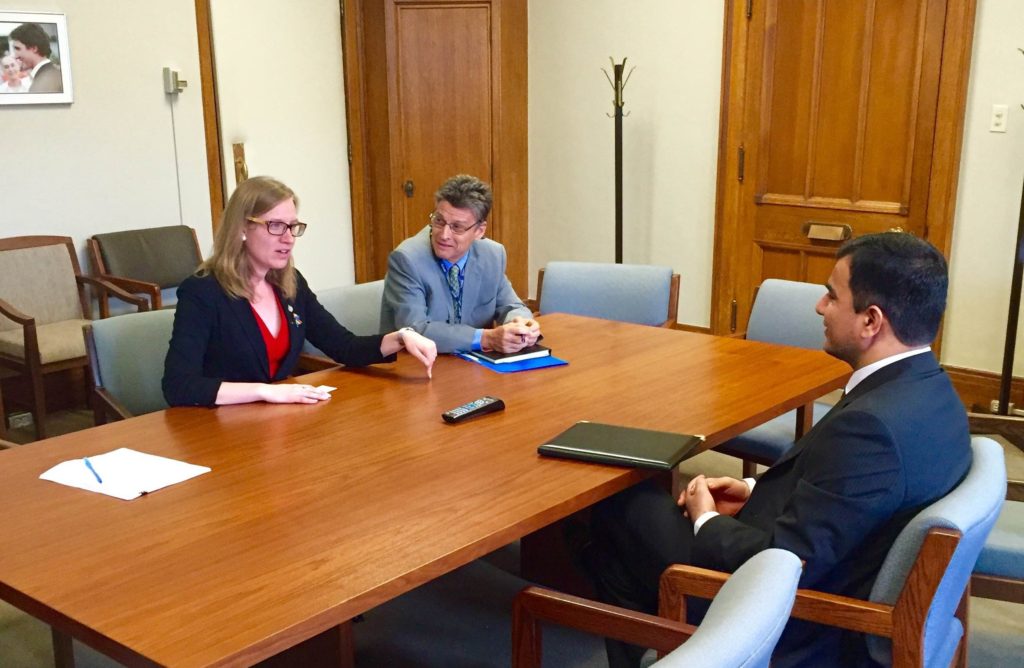 While serving as the Parliamentary Secretary to the Minister of International Development Gould met with people from other governments. Here she meets with a representative from Afghanistan. She was at a Conference with the Minister of International Development and La Francophonie in Istanbul and she began to see how highly regarded Canada was. “I was learning first hand from people this country of ours had helped and beginning to understand who we were.”
“I saw our values being appreciated and valued by others” said Gould “and it was humbling because we tend to take them for granted.”
This happened to Gould again at a conference in Africa – seeing Canada through the eyes of people who envy what we have and aren’t yet able to do the same things for themselves because of the governments they are rules by.
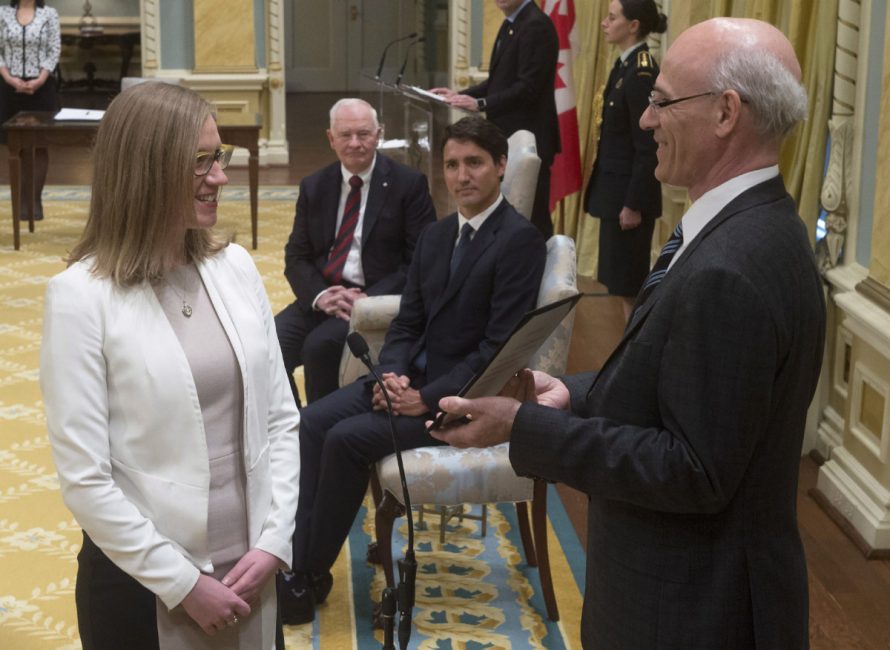 Karina Gould being worn in as a Cabinet Minister – the youngest woman ever to be appointed to Cabinet. Gould then gets appointed to Cabinet – and again gets put on yet another steep learning curve. Within weeks of her appointment she is in front of a media scrum having to defend a decision made by the government she is now very much a part of.
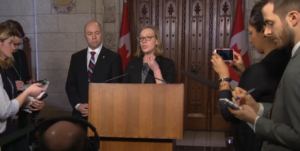 Gould at her first media scrum. She handled it very well – and without the support she deserved from the Prime Minister. Gould would never say a word about the support she didn’t get from the Prime Minister. She went in front of the cameras and did what needed to be done took one for the team as it were – and was seen by the very senior members of Cabinet as someone to be watched closely – she could be relied upon.
When media is interviewing a Cabinet Minister there is always a handler on the line. The person that helps her get away and on to the next event. John cut in and said “Pepper just another couple of minutes please”.
I asked about what it means to her to be a Cabinet Minister. “I can feel the weight on my shoulders” she said. I’ll bet she could – a few days before the interview Gould would have sat in on a Cabinet meeting where the approach to selling the budget that was going to be announced in a few days was decided.
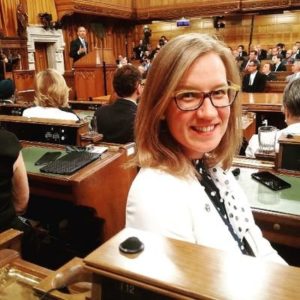 Gould in the House of Commons while then President of the United States Barack Obama is addressing the House. If this Prime Minister is anything like his Father he would have listened very carefully to each member of his Cabinet and then said what he wanted to say.
Gould had said earlier in the interview that the experiences she was having were “once in a lifetime”. What a life time it has been so far.
Hopefully this young woman will continue to mature and we will hear what she thinks and feels. She is genuine – now let’s see how she works for the people she represents, which is not just the 175,000 Burlingtonians.
Tomorrow we will write about her comments on the budget that was released yesterday – and tell you a little bit more about the chatter in her Burlington office where she is well served.

 By Pepper Parr By Pepper Parr
March 19th, 2017
BURLINGTON, ON
Tom Muir’s bottom line is that “the Board is cooking the books”.
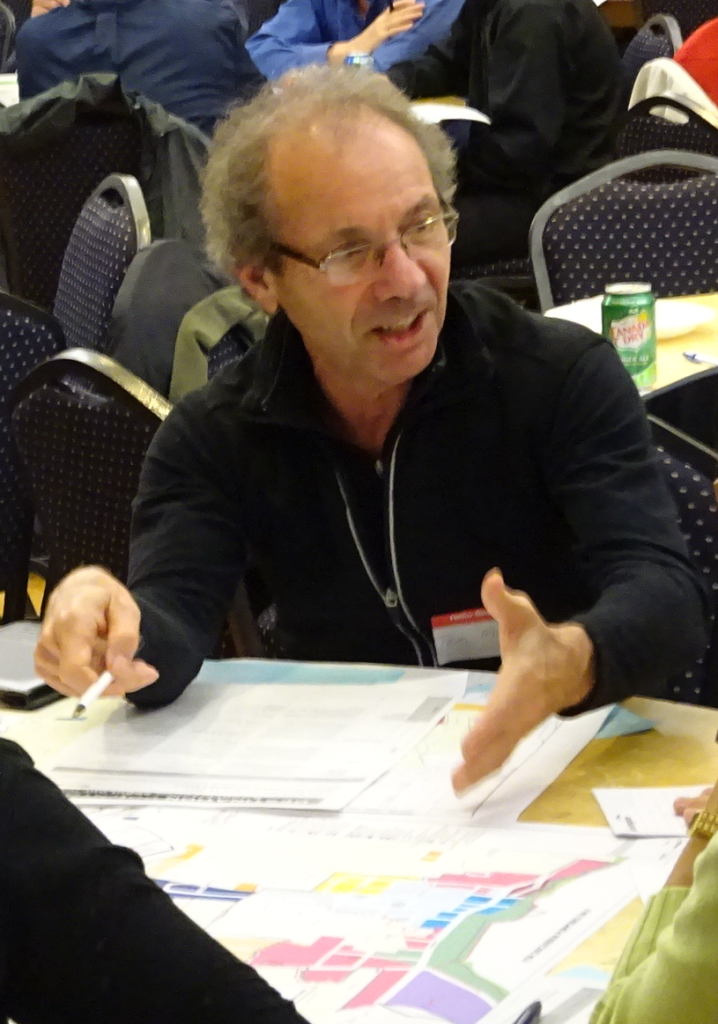 Tom Muir at a downtown planning discussion put on by Ward 2 city Councillor Marianne Meed Ward. Muir, is a Burlington resident who lives in Aldershot. He is a retired federal civil servant and a trenchant observer of what goes on in his city. He was once described as an “acerbic” personality which Muir thought was pretty accurate.
The Board cited two reasons for asking the trustees to hold a Program Accommodation Review:
Condition 1: Low Utilization, Enhance Secondary Programming and Learning Opportunities
Condition 2: Enhance Secondary Programming and Learning Opportunities
The first citing under-utilization of two schools at or below the 65% level is because the Board has cooked the boundaries and feeder distributions to produce that result.
They have done this, says Muir because the 1800 + empty seats in the seven high schools are the result of what the Board did back in 2009 to fill the new high school they convinced themselves was needed for neighbours close to Dundas Street and the homes being built in the newly created Alton Village.
Muir maintains the Board didn’t explain this to “the public or parents”. He adds that the PAR should have held the Bord accountable for that failure because the under-utilization of the existing six schools was part of what the Board knew was going to happen. The Board knew that surplus seats would be produced.” Muir adds “that was known, and part and parcel of the plan, at the time that the Hayden school was being planned.”
They made a deal with the Ministry, claims Muir, to at least partly fund new seats at Hayden by a “future disposition of surplus assets” which would be school properties – which they later identified as Central and Pearson high schools. “This is what they are trying to do now” said Muir.
The overall utilization is 75 to 80%. The new seats in Hayden are at 118 to 150 % – over-utilization of 214 to 604 seats.
 Stuart Miller during a Q&A that was webcast by the school board. According to the Directors Preliminary report, this will only get worse with growth, infill, and other development that is presently assigned to the Hayden boundaries and feeder distribution. These distributions are part of the recipe used to cook the result the Board wants.
In addition, the Board’s population and pupil yield models are projecting enrollment that is too low. The Board knows this but it still using a an enrollment model that produces bad projections. This happened when they did projections in the Alton Village, and this is known, but are still being used.
Muir believes this can be fixed. He suggests a “reshuffle of the city-wide boundaries and feeders can keep all schools above 65%, and move the average utilization toward the 75 to 80% level.
Muir opines that this is not what the Board wants. Not only that, but they are using the cooked books to show only the part of the feasible options that favor what they want, which is closures.
“I would add that the path the Board is on leads to another key logical implication, not yet in people’s consciousness, which is due to the overflowing utilization, portables, and over-directing of new pupils to Hayden” said Muir.
He adds: ” In time, with no boundary and feeder changes to balance things, the stated continued growth there, and actual population and pupil yields that have been over the Board estimates used, there will be another over-utilization based demand for another school. It’s a clear consequence of not changing how the utilization is managed and balanced.
 Central high school is the oldest in the city – and needs a lot of repair work. Parents ask why that upgrading work was not done during the past 10 years. Director of Education Stuart Miller responds with: It doesn’t matter where we put the boundaries or how we organize the feeder schools – none of these is going to produce students to fill those 1800 empty seats. And the Ministry of Education is not going to give the Halton District School Board any money to pay for maintaining those seats.
It appears however that funds will be available to do all the work that will come about should the Trustees decide to approve the closing of schools.
There is some hard number crunching to be done to determine just how much it is going to cost to close schools and what is really involved financially long term to keep them open.
Condition 2: Enhance Secondary Programming and Learning Opportunities
The second condition cited in the Directors report to the trustees was that reorganization involving the school or group of schools could enhance program delivery and learning opportunities for students.
“Director Miller repetitively says, and told me personally, that this PAR is only about the students and what is good for them.”
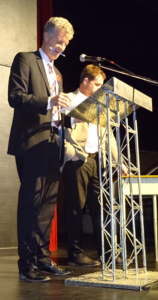 Director of Education Stuart Miller preparing for a public meeting at Central high school. “I have asked Director Miller, the Board, Trustees, and the PARC for a detailed accounting of how much money will be saved, how many new courses will be offered, what will the courses be, how will the courses benefits the students, to how many new students, at what schools, and so on, in a detailed accounting.
“This information has never been provided and doesn’t seem to be in the offing.
Muir wants to know how if no such information is provided can the PAR condition be met.
“Also, maybe people don’t know, but the Board doesn’t have to spend the savings from closures, or other measures, on providing these additional classes and opportunities.”
Before we make such decisions based on assumptions, the PARC and Trustees should be asking for the information I asked for, and for Board and Director assurances that this will be delivered.
Muir maintains “this cooking of data and misinformation by the Board was started and done to get Hayden opened. They are doing it in order to smokescreen the options toward the closures they want and that were agreed to with the Ministry in 2009.
This means that all feasible options, of which there are many, are not being explored and explained.
All management and cost-benefit data and information is not being provided.
Muir argues that “the Board has no credibility and cannot be trusted. He told the PARC and the Trustees at the start of this PAR process, “that this is what the Board staff will do to them, and that if they tolerate it, they will be led down the garden path, which is what is happening. The Director is not their friend. The Board are not their allies.”
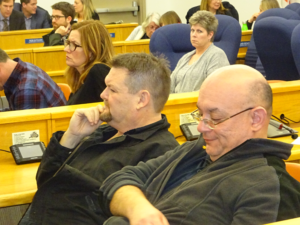 Parents listening to the proceedings of the PARC Muir believes that the only thing that will save all their schools is solidarity. “You have to pull together. You have to demand the information you want and need to meet the PAR conditions and as many criteria as you set to meet yourself.
At bottom, the only power, and this is the real trump card of the Trustees, is that they have the power of the law.
No matter what anyone says or does, Board or Director, Ministry, the Trustees decide with their votes what will actually done.
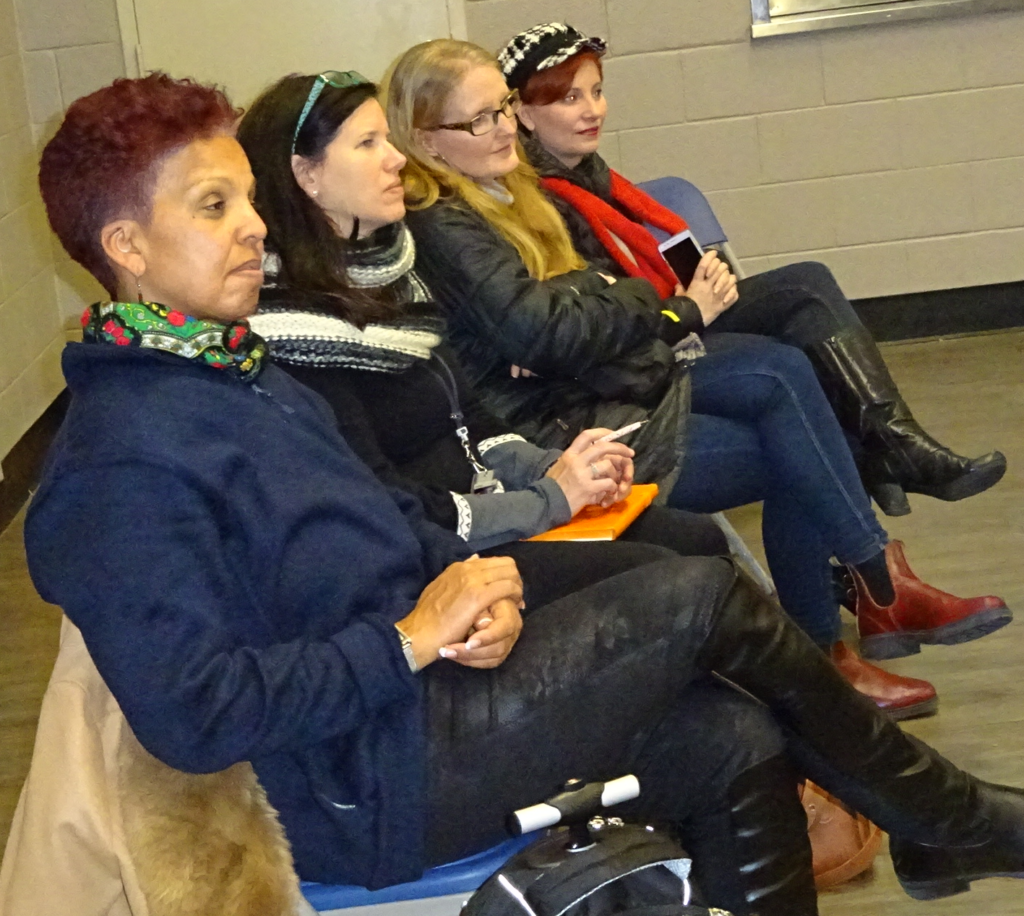 Four of the eleven Halton District school board trustees listening to the presentation given by Board Staff early in December. The Trustees are the law.
Muir pleads that PARC members not “waste this power fighting among each other, because you are all at risk, either now or in the not too distant future.”
Muir believes all the misleading misinformation, and the way the system talks in code, and partial truth is at the root of the problem the community faces. “Remember” advises Muir,” every partial truth is the beginning of a new lie.”
 Catchment boundaries are complex – the PAR committee was faced with 30 options to deal with. The prime concern for many was the lack of a high school that would serve the families in the downtown core. Aldershot on the left appears to have the balance needed – in the east end of the city Nelson and Bateman have catchments that overlap – which raised the question: Should either Bateman or Nelson be closed? Tom Muir is not the easiest man to get along with. He is direct, being polite is not his objective. Facts looked at logically will produce results that can be lived with is where he comes from.
Several months ago when Muir was delegating at city council, when Council wanted to reduce delegation time from 10 minutes to five he said:
“I would hope that Council votes in favor of the 10 minutes unanimously, as a show of good faith. I will say that a vote to reduce to 5 minutes is something I see as an insult to citizens and their possible contribution to what we do as a city – our city.”
“Further, if Councillors still want to vote down the 10 minutes, I say this. If you are so tired of and frustrated by, listening to the views of the people that elected you, then maybe you have been doing this job too long and should quit. I mean that, and will not forget how this vote goes tonight. “
“This Council is not your Council; it is the people’s Council.
“And these Council Chambers are not your Chambers, but are equally, the people’s Chambers. All the Councillors and Councils hold these offices and chambers in trust. A vote to reduce the people’s time to speak in these chambers is to fail in that trust.”
City council kept delegations at the 10 minute level.
The Halton District School Board exists to serve the needs and desires of the public not the wishes of the Director of Education and senior staff.
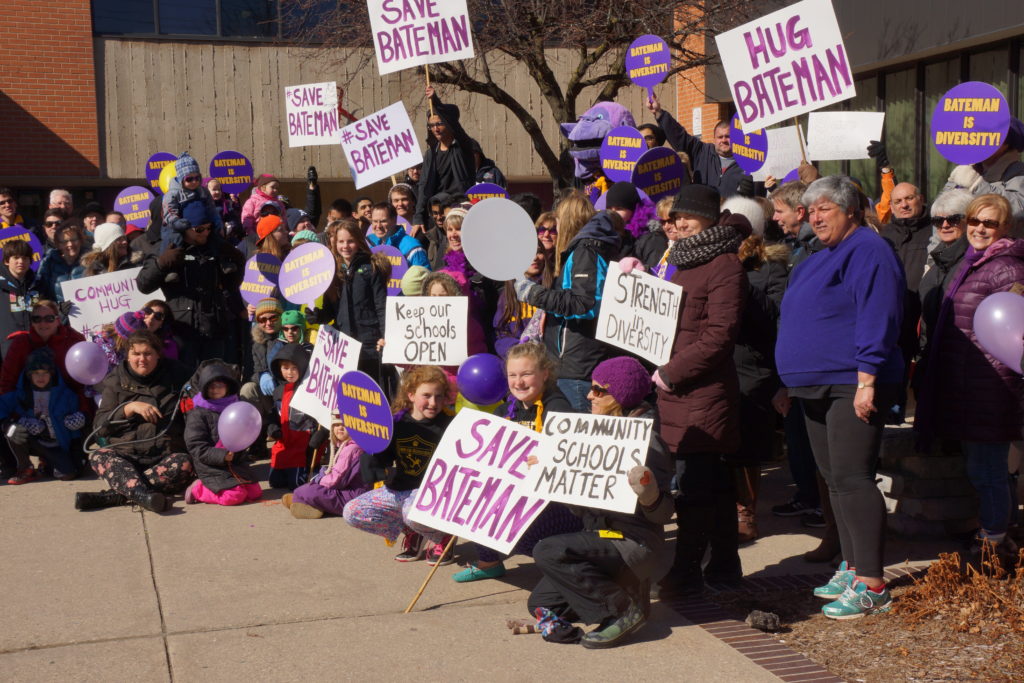 Muir thinks quiet, polite demonstrations (the Burlington model) are not the answer. Demanding accurate data on a timely basis so that people can make informed decisions is the only way parents are going to be heard is Muir’s advice. When the closure of high schools in the city became a public issue Muir had some advice for the parents that were going to be impacted.
“If parents don’t let their outrage loose, and in mass numbers demand answers to their key questions, on a schedule parents set, to the Board, and the Trustees, and your Councillor and Mayor, and right now, immediately, then the trip down the garden path will continue.
“Parents have to self-organize and go to war for what they want. Sheep are for slaughter. They are the big bad wolf.
“If parents don’t do this, then give up, because they will just put you down slowly, on their schedule, with their information driving the bus your kids are on.
“Don’t kid yourself, and don’t go quietly.”

 By Ray Rivers By Ray Rivers
March 17, 2017
BURLINGTON, ON
Globe and Mail journalist John Ibbitson sees little daylight between the foreign policies of Justin Trudeau and former Prime Minister Harper. Ibbitson should have an inside track on something like this given his extensive record as a journalist and someone who recently completed a biography on Mr. Harper.
 A Canadian soldier explains the conduct of a patrolling raid to a Ukrainian platoon during small team training at the International Peacekeeping and Security Centre in Starychi, Ukraine. And the proof. Canada hasn’t yet reopened the embassy in Iran, which Harper had closed. The Liberals have extended Harper’s military mission in Ukraine, and like the former government are providing training but no serious defensive hardware. The European and other free trade deals are moving ahead as if Mr. Harper were still in charge. And Harper’s pet Keystone XL has been blessed with the go-ahead by the new US president.
But seriously, Harper would never have supported the recent UN motion condemning Israel’s ongoing settlements on Palestinian territory. Nor would the former PM have been seen signing onto the Paris climate change accord with such determination. Our immigration and refugee policies are at a significant distance from where Harper was taking Canada. And Trudeau has now granted our NAFTA cousins in Mexico visa-free entry.
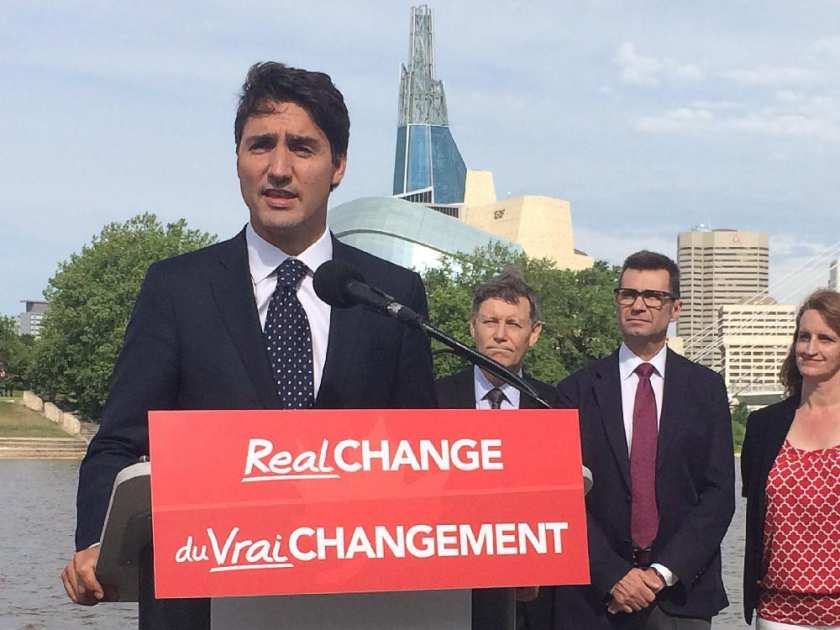 Justin Trudeau campaigned on Real Change – the exact definition of what that meant wasn’t clear – what we are getting may not have been what we thought we were being given. Trudeau was the candidate of change, so one should expect to see some daylight between him and the others. He out-flanked the NDP on the left and he turned conventional thinking on its head promising to run deficits, legalize pot, open the nation’s gates to Syrian refugees, do something serious about climate change, reform Canada’s indigenous policy and change the way MP’s get elected.
But some folks are losing their religion, getting anxious, frustrated, disillusioned, or worse. Time has a habit of eroding promises and dreams – like sand on a hillside on a windy day – or the brash and bold promises made on a campaign pulpit on election eve.
And a year later, there are business folk still waiting for that massive deficit-funded stimulus to kick-in. Aboriginal leaders are wondering when they’ll see real change in their lives and their place in Canada. Environmentalists, enthused with the declaration of a nation-wide carbon tax, are licking their wounds after the rash of pipeline announcements, and worrying about how the dinosaur leading the lemmings south of the border, might affect environmental policy in the Great White North.
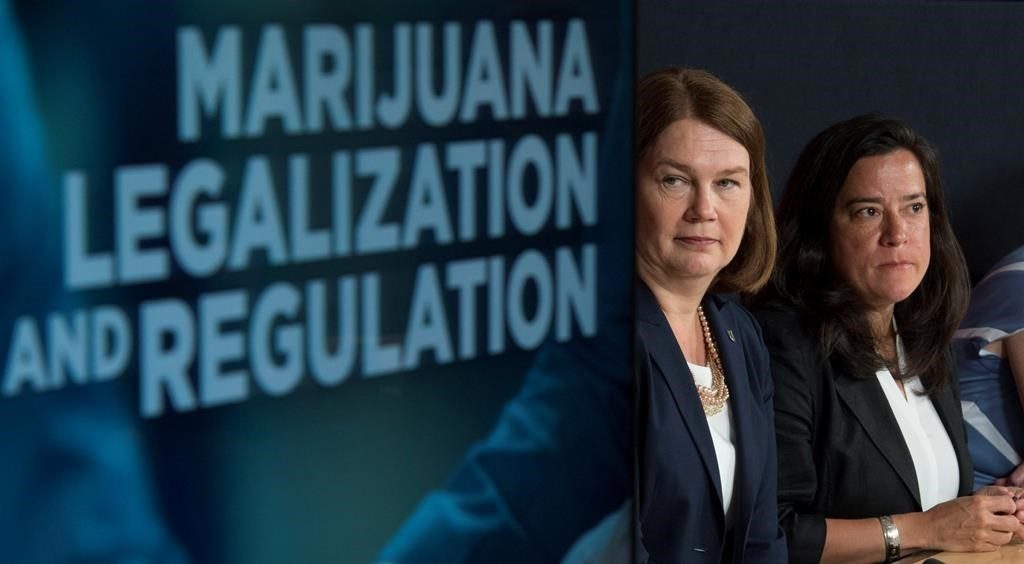 Federal Ministers Jane Phillpot; Health and Jody Wilson-Raybould, Justice And then there is that marijuana wannabe crowd. They know that pot is the biggest cash crop in the United States. So they’ve got the business munchies – eager to start making money by selling dope. But Mr. Trudeau has made it clear that legalization is mainly about keeping weed out of the hands of children. So he has smoked the wannabe vendors by sicking the cops on them – telling the police to enforce the law, even though everybody knows the law is slated to change sometime soon.
Well it is slated to change unless that particular promise gets deferred or cancelled. Folks are nervous after the PM dumped his promise on electoral reform into the trash bin of good intentions. We may recall that his father had commissioned a study back in 1969, the Le Dain Commission, which recommended removing criminal penalties for simple possession and allowing the cultivation of marijuana for personal use.
There may not have been broad consensus on pot then. Decriminalization may not have been the highest priority for the government of the late Pierre Trudeau at that time. And perhaps Nixon got in the way with his ‘war on drugs’. Still, decriminalizing Mary Jane would have kept a lot of harmless people out of jail, and would perhaps do more for the economy today than the billions Mr. Trudeau is pumping into infrastructure,
 Marijuana – the new cash crop  Canola – an existing cash crop. which of the two is healthier? Stephen Harper used to argue that the best way to keep narcotics out of the hands of young people was to just do what his government had been doing – throwing people in jail. But nothing could be further from the truth if the experience in US jurisdictions holds up.
Marijuana use among America’s youth has fallen dramatically since states started legalizing the substance. And that would put Trudeau definitely on the right track to meet his objective. And that, Mr. Ibbitson, would be a lot of daylight between him and Mr. Harper – at least on this file.
 Ray Rivers writes weekly on both federal and provincial politics, applying his more than 25 years as a federal bureaucrat to his thinking. Rivers was a candidate for provincial office in Burlington in 1995. He was the founder of the Burlington citizen committee on sustainability at a time when climate warming was a hotly debated subject. Tweet @rayzrivers Ray Rivers writes weekly on both federal and provincial politics, applying his more than 25 years as a federal bureaucrat to his thinking. Rivers was a candidate for provincial office in Burlington in 1995. He was the founder of the Burlington citizen committee on sustainability at a time when climate warming was a hotly debated subject. Tweet @rayzrivers
Background links:
John Ibbitson – Trudeau’s Foreign Policy – Enforcing the Law – Electoral Reform –
Indigenous Policy – Cannabis in Colorado – Legalized MJ – Le Dain Commission –
Youth Trends – USA Drug History –

 By Pepper Parr By Pepper Parr
March 16th, 2017
BURLINGTON, ON
There is something wrong with the schedule.
The 14 members of the PARC are going to meet on March 21st and again on the 23rd.
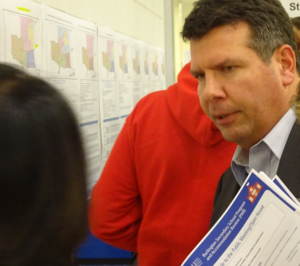 Superintendent Scott Podrebarac, Chair of the PARC, will write the report on what he determines the PARC members arrived at in the way of conclusions and any recommendations they might make. Then the Chair of the PARC, Scott Podrebarac is going to write a report on whatever conclusions he thinks the PARC arrived at and turn it over to Stuart Miller, Director of Education who will in turn craft his report to the trustees which they will receive on March 29th.
The Director will have less than six days to write his report, review it with staff and do a couple of re-writes.
Where is the time to reflect on the months of deliberations the 14 PARC members put in.
Will individual PARC members be putting together their comments and sending them along to the Director of Education?
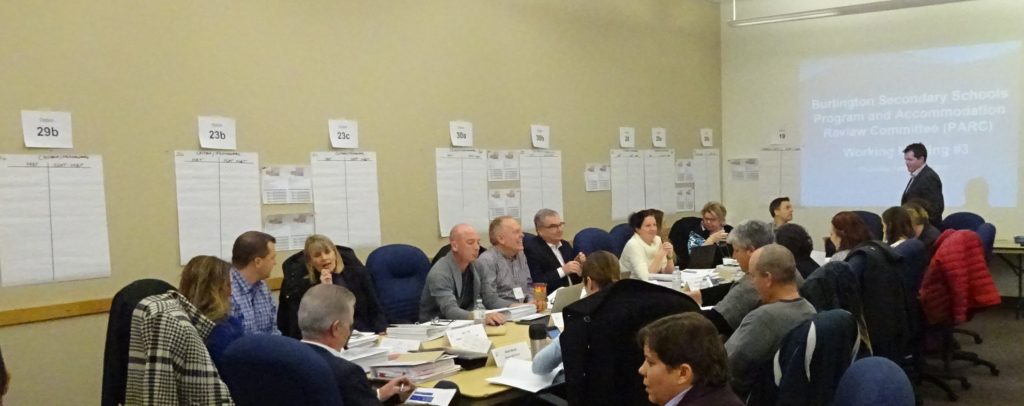 PARC members will have deliberated for more than six sessions, some of which went for more than three hours – they exchanged hundreds, probably more than 1000 emails and debated vigorously. Might the PARC itself file a minority report to give some balance to what Scott Podrebarac, Chair of the PARC produces?
There are many who think the work that PARC was asked to do is a farce.
At some point the people paying for the operation of a school board, that’s you the taxpayer, have to stand up on their hind legs and declare that enough is enough.
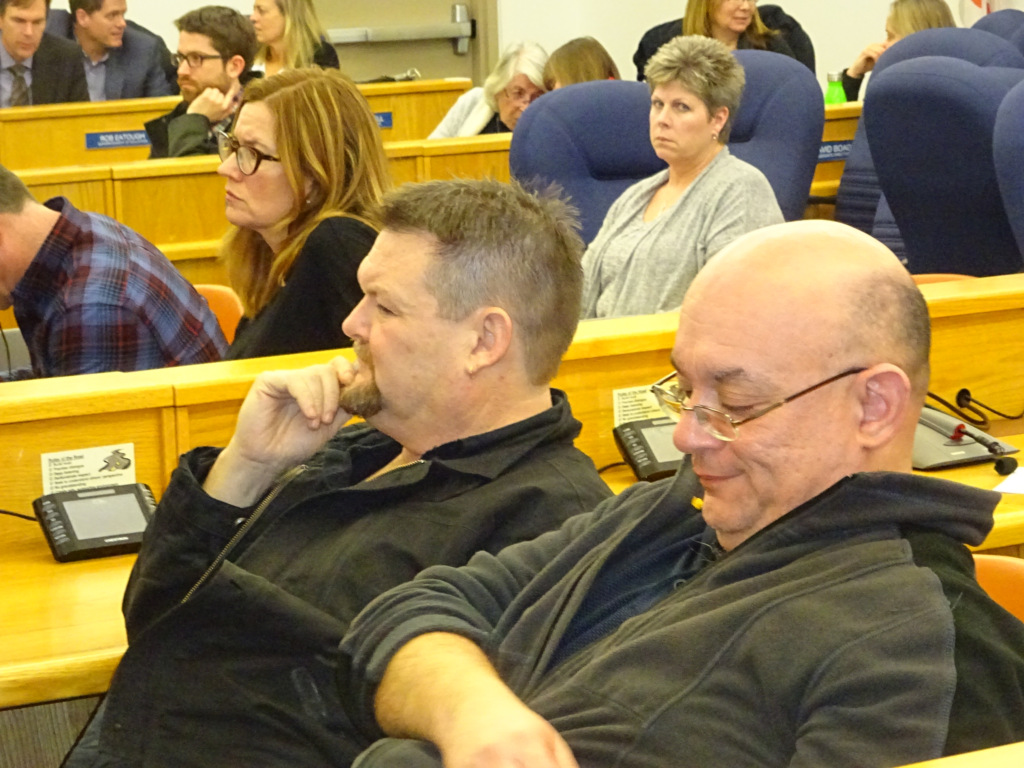 Parents listen intently at what the PARC members have to say. Many feel the completing of the PARC report allows the Director of Education to tick off a box on his to do list and move on to the next task which is to shut down two high schools.
There was a point at which the Halton District Catholic School Board (HDCSB) was in serious talks with the public school board for a possible purchase of Pearson high school. The Gazette has been told that Fred Thibeault, one of the HDCSB planners, exhausted all possibilities with coterminous, (that would be HDSB) French Catholic, French Public and the City and wasn’t able to work something out – they didn’t really go anywhere was the comment the Gazette got from a former chair of the HDCSB
The Catholic school board held a Program Accommodation Review for the elementary Burlington panel of schools. The Board staff had St. Paul slated to close; the vote to do that was lost – so it can be done.

 By Pepper Parr By Pepper Parr
March 14th, 2017
BURLINGTON, ON
Halton District School Board Director of Education Stuart Miller is not wrong – but he isn’t right enough either.
Miller is an educator. He is not a sociologist, he is not a politician. He is a lifelong teacher who grew into an education administrator.
Mention a student he taught 15 years ago at a school in Oakville and he will tell you things about that student they may have forgotten. He is passionate about the work he does.
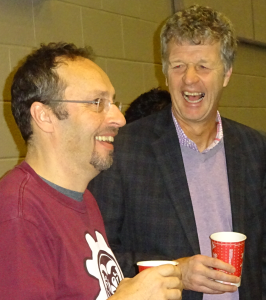 Stuart Miller works from his smile – open and very much the professional educator who wants nothing but the best for his students. Whenever there is an event that will have more than 25 students on a Saturday morning and he will show up – coffee cup in hand.
He slips out of his office at noon frequently to drive over to Bateman and have the lunch that comes out of the excellent kitchens the students run. Then he sits and eats his meal with the students.
He is exceptionally open: not everyone will agree with that statement but he is a lot more open to media than any one of the politicians in the Region. Many parents don’t feel he listens well enough; just because he doesn’t agree with them – that doesn’t mean he is not listening,
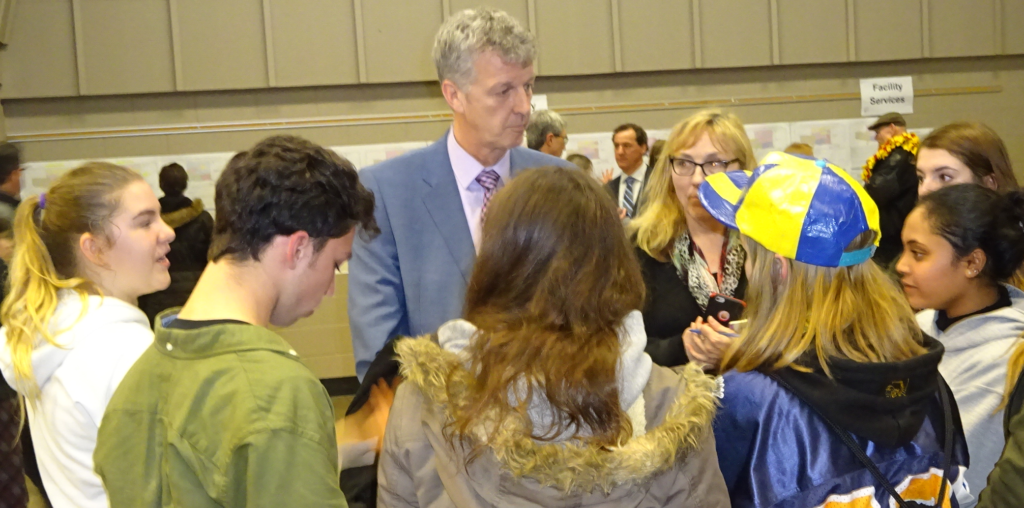 Miller is fully aware of the world his students are going into – and he wants as prepared as he can make them. He listens to the parents that want to keep their local high school open and he is mindful of their concerns but for Miller his job is to give the students he is responsible for the best education possible and that means offering every course he can in every school.
In order to do that Miller believes he needs larger high schools with more teachers to give more versions of the same course so students don’t lose out due to class conflicts. Those are the well-developed views of a professional administrator.
Parents appear to be Ok with their children going to a different school for some of their courses and Miller does what he can to make that possible.
He believes that a big high school with a lot of staff is the route to go – so when he says he wants what is best for the students he is talking about the course offerings.
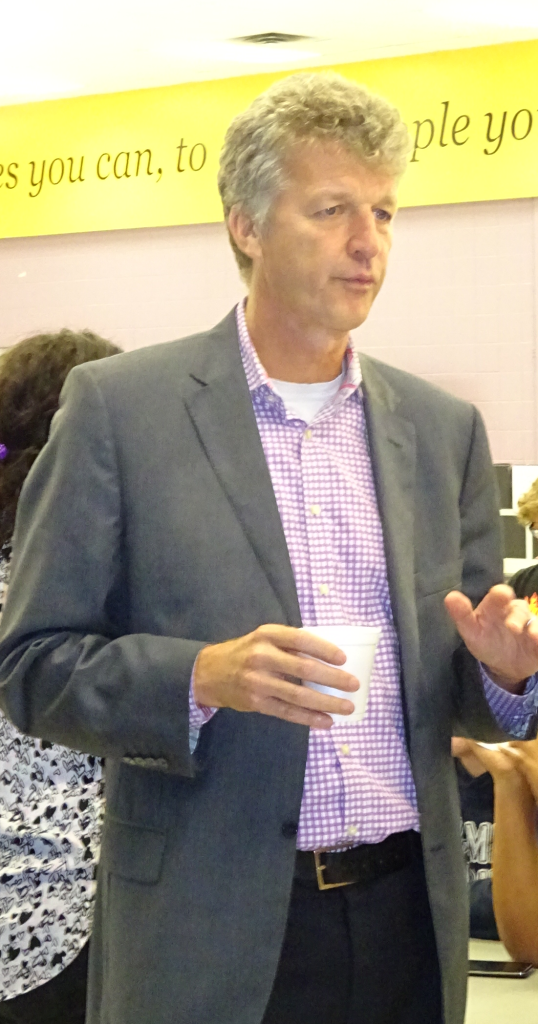 Miller with the ever present coffee cup. That a school has some history the students can attach themselves to is something Miller grasps but he doesn’t understand why a person would put a first class education before having a school they can walk to.
Miller doesn’t live in Burlington. He commutes to Burlington from High Park and uses the 45 minute drive to think through the day he is getting into.
Miller is all about education – he could have a stronger team supporting him but he hasn’t been the Director of Education for two years yet – the public might yet see him as the person who creates a team of Superintendents for the Halton District School Board that are second to none. He doesn’t have that yet.
The team he has is made up of decent people but they have not given Miller anything in the way of new ideas or innovative approaches to solving the problem he faces.
The lens Miller looks through is those 1800 + empty classroom seats and from his perspective it doesn’t matter how he re-arranges the boundaries or the feeder elementary schools – he still has those 1800 empty seats.
What Miller and his staff have not done is come up with proposals or initiatives for the trustees to consider. The province doesn’t fund empty seats.
While Miller has said again and again that the issue is not about money, from his perspective but it is in reality a money issue.
If the trustees decide to not close any of the high schools and to shift boundaries so that the pressure is taken off Hayden and Pearson gets back the population it once there will be more balance – but the city will still have high schools with considerably less than the 1000 students Miller thinks are needed to be able to offer a full palette of course offerings.
 The Halton District School Board in session. Eight of the 11 trustees have just a little over two years experience. A number of them may not have the depth of experience to handle the task ahead of them. A couple have been on the Board far too long. The trustees need to instruct Miller to give them financial options. If every high school is to be kept open the money to pay for those empty seats has to be found somewhere. The trustees need to direct the Director to find the savings within the budget they now work with.
The philosophy board staff appear to work from is bigger schools mean better educations at the high school level.
It is the trustees, serving the people who voted for them that make the final decision – and if the parents want all the school kept open so that a sense of community is kept with the schools we have and they want students walking rather than spending a significant part of each day on a bus – then that is what the trustees should be expected to deliver.
Miller is open to new ideas – he welcomes them and he listens intently – but he doesn’t appear to be a new idea kind of guy.
He spent some time in Africa with his wife but other than that his career has been with Halton where he started out as a teacher and grew into a bureaucrat who now faces the biggest administrative challenge of his career.
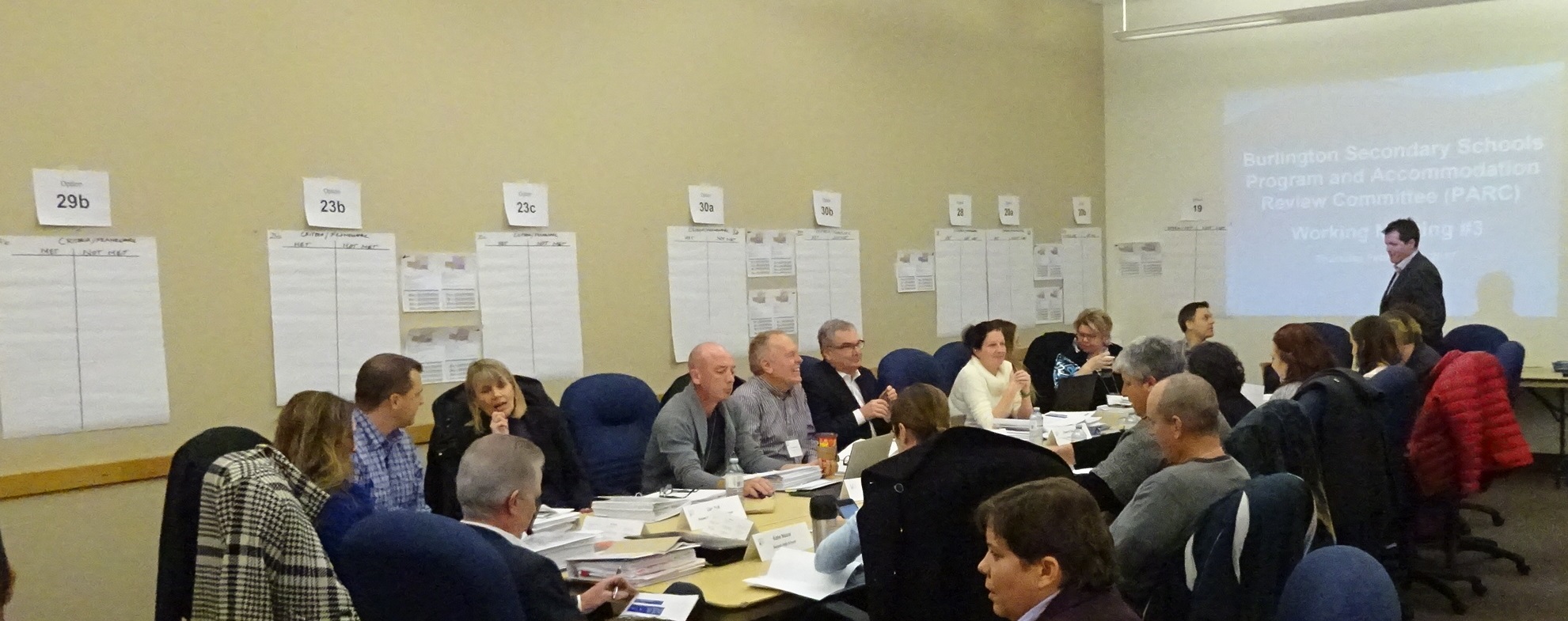 Why is this PARC not leading more instead of following a process that the smarter members believe to be seriously flawed? The Program Accommodation Review Committee (PARC) is not coming up with much in the way of new ideas – they have become a group that is squabbling with the different high school representatives fighting for their own turf.
Board staff are leading the PARC through a process and the members of the PAR are putting up with it. There are voices on the PARC that can and should be showing much more in the way of leadership.
Miller will serve as the Director for perhaps another ten years. He doesn’t appear to be the kind of guy that will go up against the Ministry of Education. He doesn’t appear to have any aspirations to become part of the provincial government bureaucracy either.
A strong board of trustees can develop their Director of Education into the kind of person the city needs. The Director can then develop the staff that he needs.
Stuart Miller is a passionate advocate focused on giving the students in Halton the best education possible.ll about the students.
What he needs to appreciate is that those students have parents who also have a say, the say for that matter – at least in a democracy.
He is not wrong, but he is not right enough on the community element which is a large part of an education.
 Salt with Pepper is an opinion piece by the publisher of the Gazette who has been covering Boards of Education since the Living and Learning document was released when Bill Davis was the Minister of Education. Salt with Pepper is an opinion piece by the publisher of the Gazette who has been covering Boards of Education since the Living and Learning document was released when Bill Davis was the Minister of Education.

 By Ray Rivers By Ray Rivers
March 10th, 2017
BURLINGTON,ON
What did you do to celebrate International Woman’s Day? I attended a media roundtable with Ontario’s first female Premier at her office in Queen’s Park. Always professional and direct, Kathleen Wynne should have been facing a potentially tough media presser, the trendy term for press conference. But she got off lightly considering the topic, electricity pricing, has been largely responsible for her party’s position at the bottom of the opinion polls.
The sorry history of the electricity file most recently begins with that common sense guy, Mike Harris, who did to Ontario’s electoral sector what GW Bush had done to Iraq. In his ideological zeal to replace everything government, he broke up Ontario Hydro then banned Ontario Power Generation (OPG), one of the largest and most experienced power companies in North America, from developing alternate energy supplies.
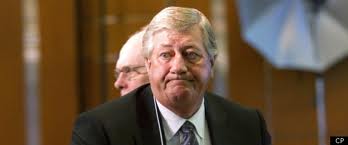 The look pretty well sums it up. His mismanagement spiked hydro rates and led to black and brown outs, even in that brief period of these changes before the Liberals ousted him. But then Dalton McGuinty had also drunk the Kool Aid, and in his passion to keep the lights on while he phased-out the coal power plants, continued writing lucrative 20 year private sector energy contracts like the proverbial drunken sailor. The contracts mostly guaranteed prices and quantities of power delivered, regardless of whether the energy was needed.
It made some sense from the point of view of the small energy supplier who needed market assurances in order to invest. But in the process Ontario not only bought over-capacity, but over-production, which periodically has to be sold at bargain basement rates to utilities south of the border – or spilled.
 Niagara Falls – the source of a lot of the energy that powers western Ontario. It once made the province a leader in hydro generation.
McGuinty and Harris and their cheering section of academics and industry special interests were wrong when they claimed electricity in Ontario shouldn’t be a natural monopoly. It is no secret that those public hydro monopolies in B.C., Manitoba and Quebec have the lowest utility rates in the country. Of course those provinces have vast stores of water power and Ontario did waste a ton of money experimenting with the nukes. But where has all this new alternative private power development landed us? When prompted, the Premier confessed that her staff had considered re-inventing the old Hydro One, but they believe the time for that option is long passed.
We are now stuck with our mixed private-publicly owned system and the consumers are stuck with the big bills we’ve seen of late. So instead of forcing energy users to pay those bills as we go, Ontario’s new ‘Hydro Plan’ involves buying a 30 year mortgage at today’s low interest rates. That way those billions of dollars committed to private sector contracts will spread out over a longer term, and even with the new financing costs, the average utility bill will fall by about a quarter. Of course that presumes that interest rates don’t start to rise.
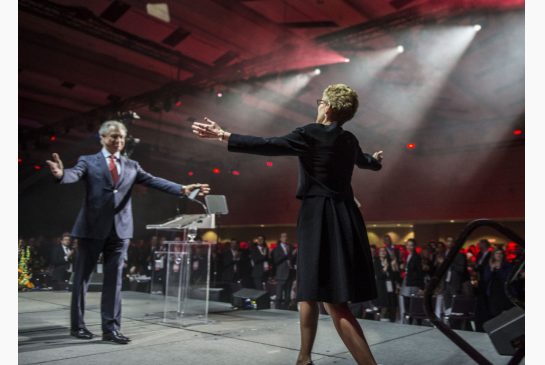 Will the arms be as open in June of 2018 – which is when we get to cast a ballot. The government will peg rate increases to inflation for the next few years, while doing something to bring down the outrageous cost of delivery and using more tax-based subsidy to assist households with lower incomes, and small business. Electricity is no stranger to subsidy and debt. We should recall the massive debt the old Ontario Hydro had run up prior to Harris’ version of shock and awe. Almost 30 billion in liabilities exceeded the assets of both Hydro One and OPG.
Wynne may call this a structural change, sharing the financial burden imposed by these contracts with the next generation. But it is really just about moving money around, taking out a mortgage to help cover sunk costs instead of paying as we go. And it’s not like there are any other options to lower the prices, short of tearing up the contracts, something the courts would never allow.
So the Premier got off pretty lightly with the media at the presser. Perhaps they all understand that she is short on options to deal with something that should have been dealt with a decade or two earlier. Or maybe they are just tired of this topic that has been played too frequently by a media looking for human interest stories, and opposition parties looking to raise their own profile.
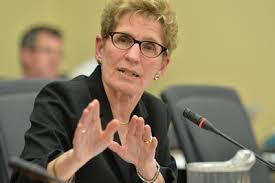 The Premier explaining … We should all hope that the mistakes of the past will not be repeated and that somebody in the energy ministry is working on a real plan, but that was not revealed in the Premier’s presser. Perhaps that is something she is keeping under wraps until the party’s election platform is unveiled next year? But for now it looks like this is as good as it gets.
 Ray Rivers writes weekly on both federal and provincial politics, applying his more than 25 years as a federal bureaucrat to his thinking. Rivers was a candidate for provincial office in Burlington in 1995. He was the founder of the Burlington citizen committee on sustainability at a time when climate warming was a hotly debated subject. Tweet @rayzrivers Ray Rivers writes weekly on both federal and provincial politics, applying his more than 25 years as a federal bureaucrat to his thinking. Rivers was a candidate for provincial office in Burlington in 1995. He was the founder of the Burlington citizen committee on sustainability at a time when climate warming was a hotly debated subject. Tweet @rayzrivers
Background Links:
Premier’s Statement – Wynne’s Popularity – Hydro plan – More Hydro Plan –
Voter Anger – Business Perspective –

 By Donna Grandin By Donna Grandin
March 8th, 2017
BURLINGTON, ON
Where’s our Supercrawl, Burlington?
Yes, we have Sound of Music, but that’s an annual event in a park. The momentum of the annual Supercrawl is sustained by monthly art crawls, and the creative businesses on James St. N and surrounding streets.
 Donna Grandin is a successful local artist active in the annual Art Tour. Where is our local art scene? The pop-up galleries, established commercial art galleries, affordable artists’ studios, and then all the other businesses that develop on the fringes of the “scene”?
In the last five years especially, I’ve had the pleasure of getting to know many of you Arts & Culture people in Burlington, but I’ve also seen us lose talented members of our community as they answered the call of lower cost of living, and a more support for the arts, in Hamilton.
Do we just not have enough people interested in buying local art, in going out to local arts events, in investing in the local arts community?
Apparently, there’s not enough potential for gentrification, our real estate prices are too high, rent is too high.
But I still see empty buildings here and there.
Any thoughts?

|
|
 Because the response to my Freedom of Inforamtion (FOI) request to the Halton District School Board got tied up in the mail, my failure to receive a response to an identically worded FOI request to the Ministry of Education prompted me to contact them. I found the same problem that a Ministry response was in the mail to my home.
Because the response to my Freedom of Inforamtion (FOI) request to the Halton District School Board got tied up in the mail, my failure to receive a response to an identically worded FOI request to the Ministry of Education prompted me to contact them. I found the same problem that a Ministry response was in the mail to my home.


























































































